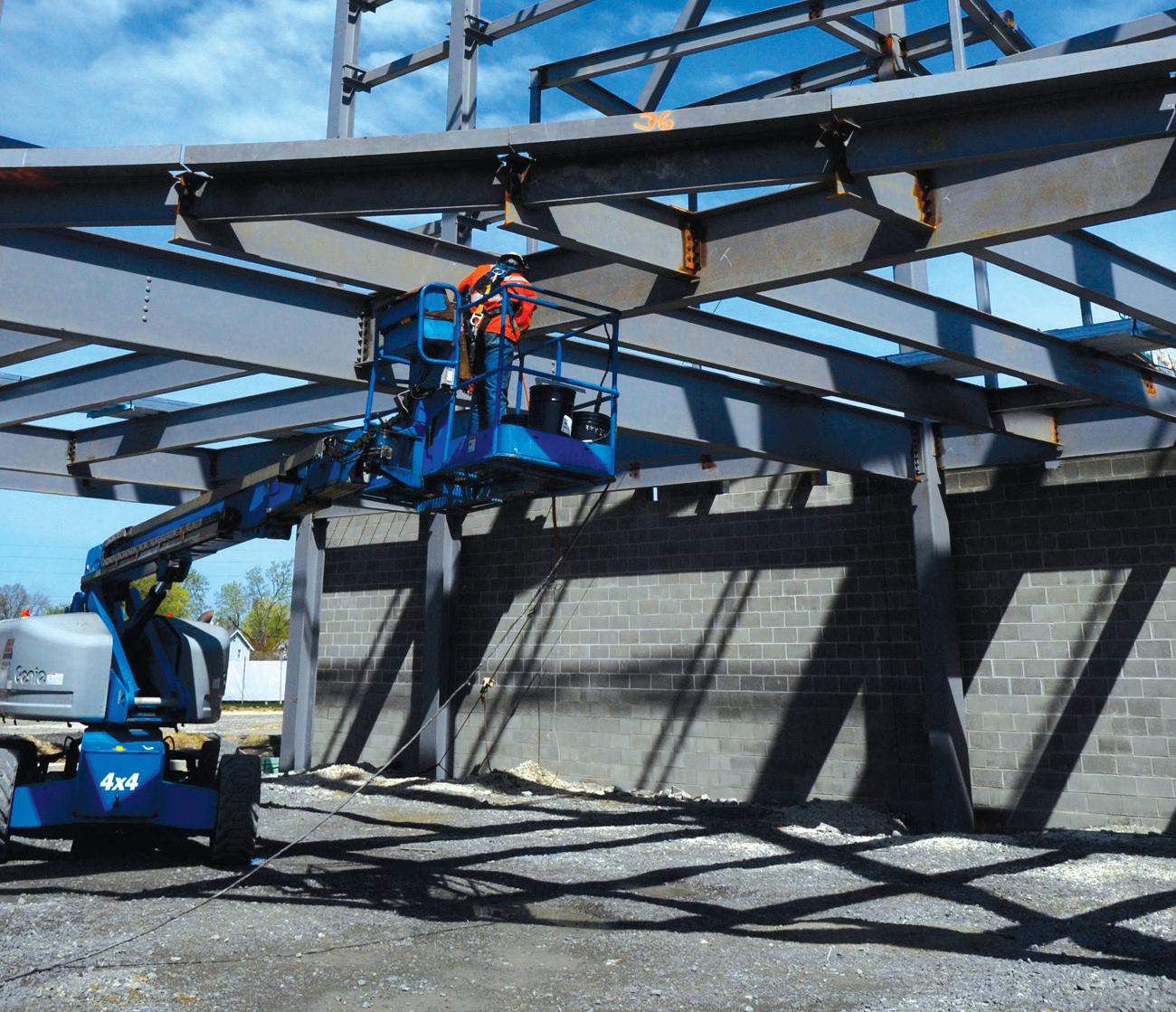
1 Apprenticeship & Career Guide Western Reserve Building Trades and the Upper Ohio Valley Building and Construction Trades Council
BUILDING TRADES APPRENTICESHIP & CAREER GUIDE
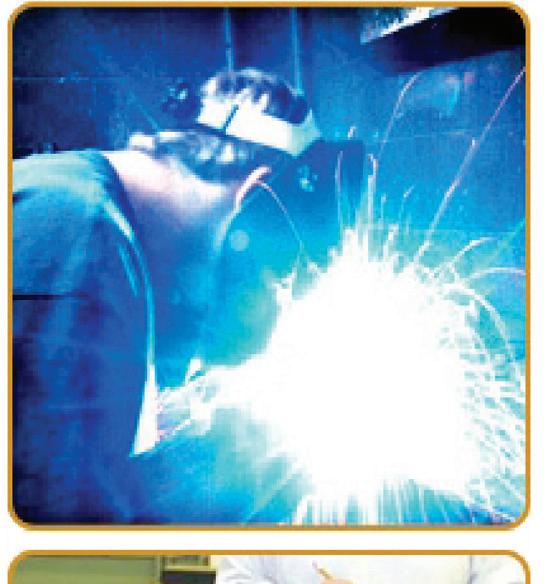
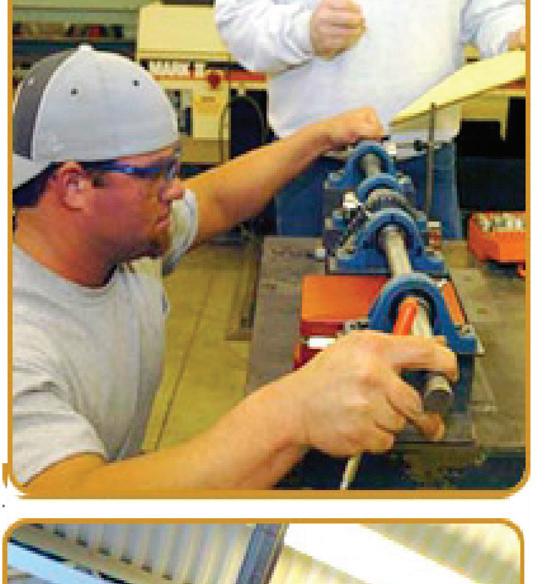
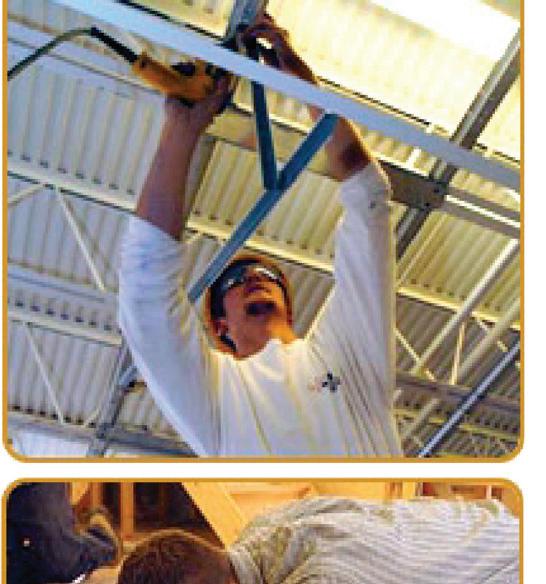





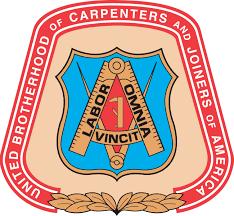
2 Apprenticeship & Career Guide Your Day Has Come... Get the wages and respect you deserve. A good quality of life for you and your family is just a few steps away. As a union carpenter apprentice, you will earn as you learn, acquire job job skills that are needed in this region, and will become part of the strongest organization in the country. Learn from the pros, learn a trade and put money and benefits in your pocket. Launch a career as a union carpenter! Learn, Earn and Build a career of a lifetime. Call 330-659-9495 or visit www.ohcap.org today! Become a: Carpenter Floorlayer Residential carpenter Interior systems specialist Millwright Piledriver Free Training Good wages while in training
- scheduled raises for good work Medical and other benefits after 90 days in training Advancement opportunities Free college credits
Regularly

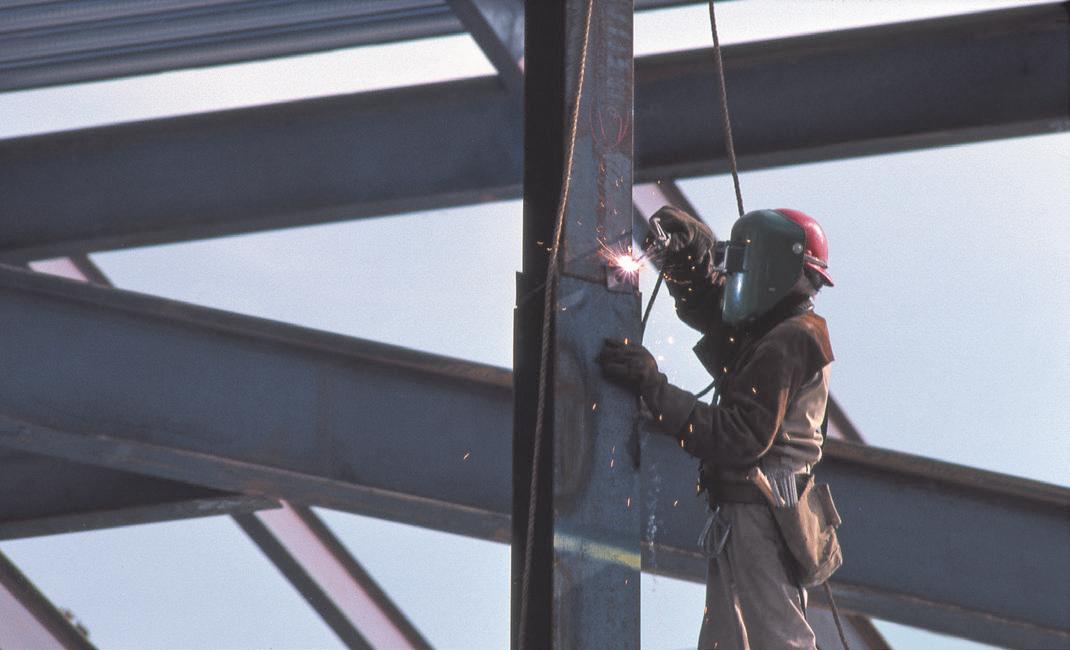
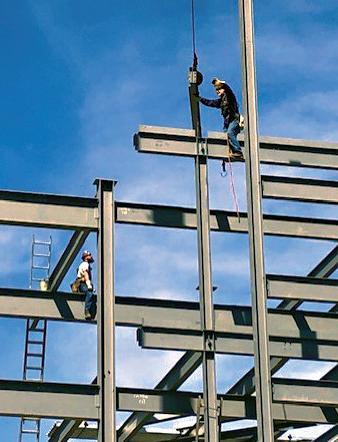
3 Apprenticeship & Career Guide CONTENTS Boilermakers ............................................ 18 Bricklayers & Tilesetters ............................ 6 Carpenters ................................................ 8 Electricians .............................................. 10 Elevator Constructors............................. 23 Heat & Frost Insulators ............................ 19 Iron Workers ............................................. 30 Laborers ................................................... 14 Operating Engineers .............................. 26 Painters .................................................... 16 Plasterers & Cement Masons ................ 23 Plumbers/Pipefitters................................ 20 Roofers ..................................................... 21 Sheet Metal Workers .............................. 16 Teamsters................................................. 22 Cover story ................................................ 4 Directory ............................................ 28-29 BCTD Apprentice Training ..................... 24 Q&A ......................................................... 25 PROJECT MANAGER / Leslie Gardner Advertising Sales/ Leslie Gardner Graphics/ Aaron Schmidt Tribune Chronicle 240 Franklin St. SE Warren, Ohio 44483 The Building Trades Apprenticeship and Career Guide is published in cooperation with the Western Reserve and Upper Ohio Valley Building Councils. All rights reserved. No portion of Building Trades Apprenticeship and Career Guide may be reproduced without written permission of the publisher. 2024 Phone: 330-841-1700 Fax: 330-841-1639 DREAM BIG, BUILD BIG. BUILDING TRADES APPRENTICESHIP RECRUITING ALL TRADES LEARN MORE: Paid, tuition-free classroom plus on-the-job training. No experience required actohio.org/apprentiship/ info@actohio.org 614-228-5446 Iron Workers
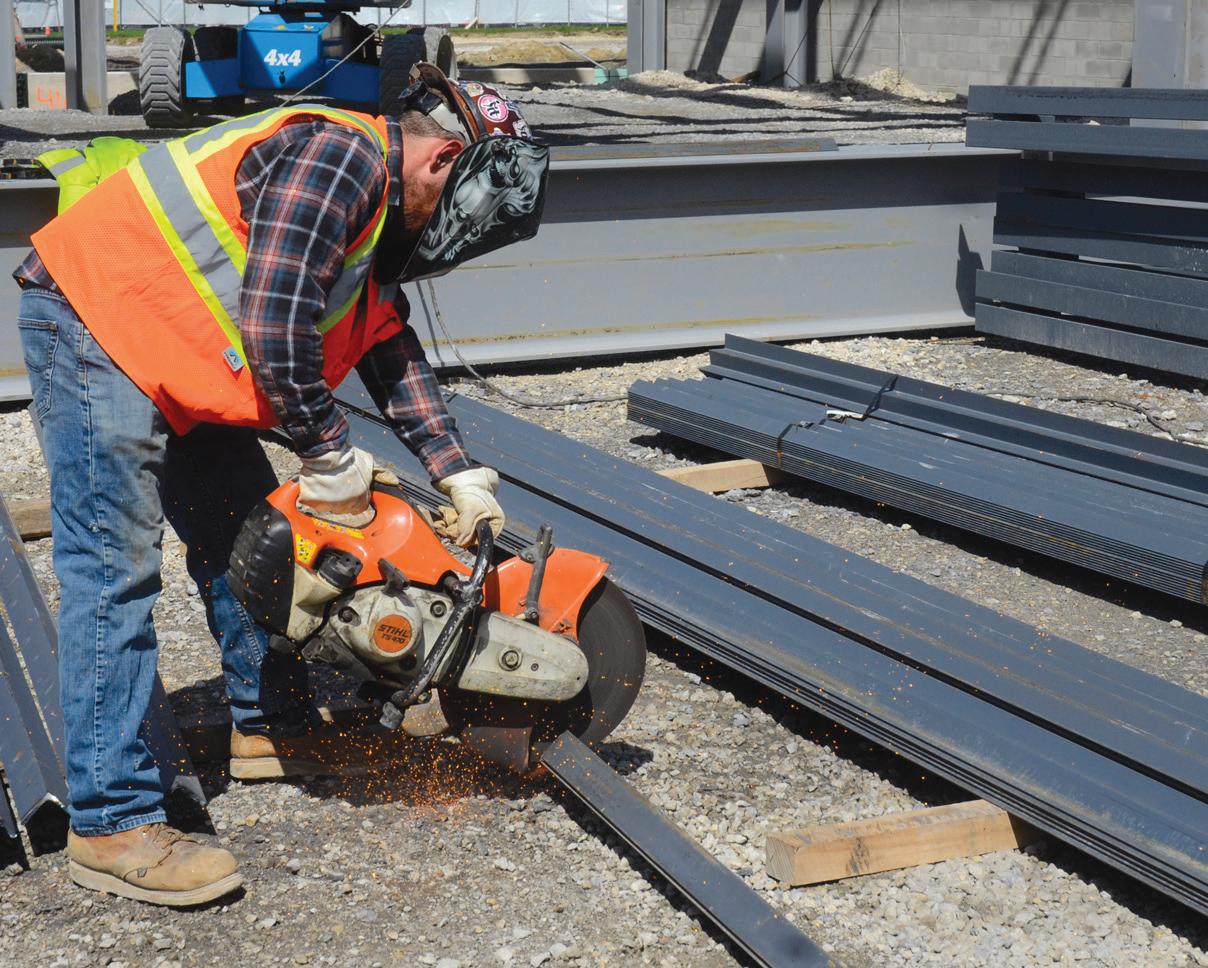 By RON SELAK JR. Staff writer
By RON SELAK JR. Staff writer
From the birth of the Mahoning Valley Skilled Trades Expo in 2019 to creating a website that centralizes information about all of the region’s trade groups to partnering with educators to reintroduce trade work as a viable career path for students, there’s been a full-court press on to grow pre-apprenticeship and apprenticeship programs.
It’s taken a bit of steam, but the engagement effort is starting to pay off. There’s a buzz, an energy, an excitement about careers in the skilled trades, and some actual, tangible results in growth in the ranks.
Take for example Plumbers and Pipefitters Local 396 in Boardman. There were 22 people in last year’s apprentice class (they’re first-year apprentices in 2024) and only three were older than 25, according to Marty Loney, business representative for the local.
“So, if you go back and do the time frame from 2019 to current, that fits perfectly in line with what we are trying to do and what we are trying to accomplish with those trade expos and getting out into the school districts, so it’s starting to work,” Loney said. “We knew
BUILDING A BUZZ AROUND CAREERS IN SKILLED TRADES
Charlie Jameson, an ironworker of Champion, who was working for Leetonia Steel Erectors LLC, cuts through a piece of steel in this photo from April 2023 at the new Student Recreation and Wellness Center for Warren City Schools.
it was going to be a little bit of a haul. We knew it was going to take us a little time to get it established and tout it. We were able to secure some money from Mahoning County commissioners to be able to advertise and do some things we weren’t able to do in the past, and it’s been very helpful.”
SHIFT IN THINKING
Around 2019, and probably even a few years prior, a vision started to crystalize to engage the region’s educators and school counselors that there are viable career paths for students that don’t include college.
Fortunately, there were receptive partners like the Educational Service Center of Eastern Ohio and Trumbull County Educational Service Center, according to Gary Hartman, association services director for the Builders Association of Eastern Ohio & Western Pennsylvania.
“We knew where we wanted to get to, we just weren’t quite sure how to get to that point. With the help of a lot of administrators, counselors and other educational people we brought to the table, we were able to get a better grasp of what was going on with the schools, what they were doing with careers and career planning,
4 Apprenticeship & Career Guide
Staff photo / R. Michael Semple

“From the feedback we are getting, we are seeing success with it.”
— Gary Hartman, association services director, the Builders Association of Eastern Ohio & Western Pennsylvania
how they were teaching their students about other options,” he said.
In his six years with the builders association, Hartman said he’s “seen a massive change in school districts.”

“It’s phenomenal. It’s giving those kids an opportunity to explore other options for careers that are out there that they might now know about, and a lot of those careers are local here in the Mahoning Valley,” Hartman said.
Attitudes have shifted from 20 to 25 years ago, when, Loney said, schools began to remove wood shops, metal shops and mechanical drawing to focus on state testing and post-secondary education.
What happened many years ago hurt the skilled trades, which saw a drop in their apprenticeship programs. Contractors, too, were hurt by the transition. “They can’t grow their companies without people.
They can’t take on more work without having the manpower to do that,” Hartman said.
So, workforce development was a top goal of the engagement effort. Another was to support the self-funded apprenticeship programs and increase completion rates, making them more successful, Hartman said.
“From the feedback we are getting, we are seeing success with it,” he said. “Where we are seeing success is the average age of an applicant is much, much lower. The average age before was approximately 26 years old. Now, the average age is about 19 to 20.”
There also are higher success rates for program completion.
Said Loney of the goals, “A big portion of it was, No. 1, to engage potential apprentices. Two, to show there is a viable economic future. They can earn a living wage, pensions, annuities, retire with dignity, and health care. All of the things we pay for out of the respective trades. Three, we had to show the school district there is another option out there.”
5 Apprenticeship & Career Guide
Continued on Page 13
Staff photo / R. Michael Semple
The steel skeleton in April 2023 of the new Student Recreation and Wellness Center for Warren City Schools.
Gary Hartman

BRICKLAYERS & TILESETTERS
International Union of Bricklayers and Allied Craftworkers (BAC)
620 F Street N. W., Washington D.C. 20004
(202)783-3788
DESCRIPTION
www.bacweb.org
BAC craft workers build, repair and renovate structures, and portions of structures that are made of brick and other clay products, structural tile, concrete, cement, stone, marble, glassblock, terra cotta, tile, terrazzo, plaster, mosaics, castables and artificial masonry units made of any material. Their work includes laying, setting installation or application of all such materials and the preparation of all structures or components to receive such materials. The skilled crafts represented by the BAC, often called the trowel trades, are Bricklaying and Block Laying, Concrete Masonry, Plastering, Pointing, Caulking and Restoration, Refractory and Industrial Masonry, Stone and Marble Masonry, Terrazzo Work, Tile Laying and Mosaic Work.
APPRENTICESHIP
Apprentices enter the trowel trades through apprenticeship with a local joint apprenticeship and training committee (JATC). JATC’s recruit, screen and select apprentice candidates and oversee their progress on the job and in the classroom. The length of apprentice-ship is three to four years, depending on the craft.

• Age requirement: 17 years minimum
• Testing: General Aptitude test
• Drug testing: yes
• Information needed: Valid ID, birth certificate, high school transcripts, or military service record, certification on completion.
• Requirements: explained at application interview
• Length of program: 4 years plus 8 week preapprentice training / 6,000 hours
• Scope of work: trowel trades
• Requirements: Physically capable of performing work of the trade
• Other Information: Every applicant is interviewed
journey workers or for both. They may be instituted to provide for long term career growth or they may be set up to respond to very specific local market needs. Those journey workers who choose to become full or part-time craft instructors must enroll in the IMI Instructor Certificate Program, a 200-hour teacher training program that counts toward college credit and can lead to a Bachelor’s Degree.
SPECIALTY TRAINING
New apprentices are sometimes enrolled in pre-job training in their selected trowel trade before going to work for a contractor. Pre-Job training is 640 hours of hands-on experience in work-like situations combined with classroom work. This prepares new apprentices to be productive and earn their wage from the first day on the job. Trowel trades workers may continue to add to their skills throughout their careers. Advances and crosscraft training opportunities are provided to expand a worker’s craft skills, leading to greater work opportunities. Such programs can be geared for apprentices, for

6 Apprenticeship & Career Guide
Become An Apprentice With Bricklayers and Allied Craftworkers Local 23
Earn while you learn in the four-year, tuition-free Bricklayers Apprenticeship Training Program.
As a Bricklayers and Allied Craftworkers apprentice, you’ll learn from the best of the best. During the program, apprentices come in on a rotating basis for one week at a time from September through May. The rest of the time they are working in the field doing the following:
•Bricklaying
•Stone and marble masonry
•Tile-setting
•Terrazzo and Mosaic
•Pointing, cleaning, and caulking
Apprenticeships with Bricklayers and Allied Craftworkers Local 23 are TUITION FREE! Because this Joint Apprenticeship Training Committee (JATC) program is 100% funded by Bricklayers 23 and its signatory contractors, apprentices get paid union wages –including retirement and healthcare benefits — throughout their four years in the program.
How Much Do Apprentices Earn?
As an apprentice, your hourly wages are determined by the current prevailing wage for apprentices in your trade in your county. Pay increases come periodically throughout the year as on-the-job training and related instruction in the classroom requirements are met.



Earn While You Learn

7 Apprenticeship & Career Guide-
Apply Today at www.bac23-ohwvky.com/apprenticeship/
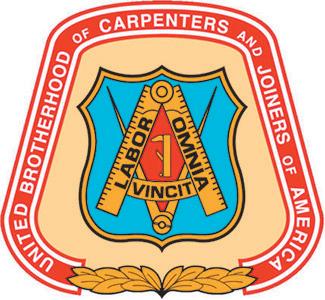
CARPENTER
Northeast Ohio Carpenters JATC
4100 Maple Dr. Richfield, OH 44286
• Fee: No
• Age Requirements: Minimum 17 years
• Drug testing: Yes
• Length of program: 4 years
• Applications accepted: Call for information
• Information needed: High school diploma or GED
The UBC covers 10 distinct classifications of workers.
1. Carpenters build all types of structures from office buildings, to shopping malls, factories, and sports stadiums.
2. Residential Carpenters build single unit homes, town homes, condominiums, and apartments.
3. Millwrights install, repair, replace, and main maintain all machinery in all types of industrial applications including auto manufac turing plants, steel mills, paper mills and nuclear power plants.
4. Cabinetmakers build and install cabinets, store fixtures, tradeshow displays, doors & windows, and moldings.
5. Piledrivers install the underpinnings for build buildings and bridges, build docks and wharfs, and supply commercial underwater divers for a variety of tasks.
6. Floor Coverers install carpet, vinyl, and hard wood on floors and walls.
7. Interior Systems Carpenters build interior walls and partitions with steel studs and apply the finish surfaces to walls and ceilings in com commercial and residential buildings.
8. Drywall Applicator Specialists specialize in the application of drywall in commercial and residential buildings.
9. Acoustical Carpenter Specialists specialize in the application of acoustical ceilings in com commercial and residential buildings.
10. Lather Specialists specialize in layout, framing, and application of supported and free-standing lath that supports plaster finishes.
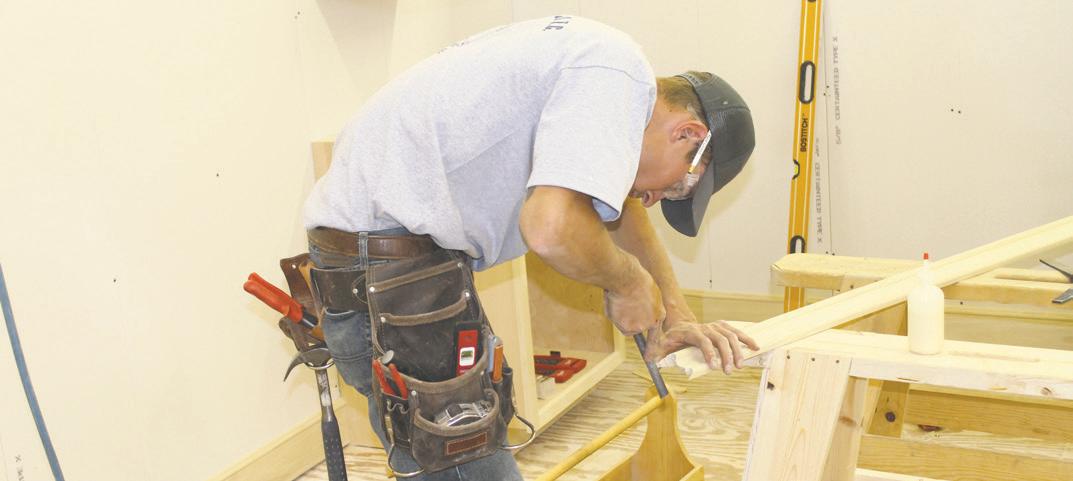
APPRENTICESHIP
Our apprenticeship programs offer life-long careers in the construction industry. A UBC apprentice is someone who learns a trade while working under the guidance of a skilled journeylevel worker. Apprentices attend 4 weeks of hands-on training per year at one of our 180 training centers that are located throughout the country. Our apprenticeship programs are available to anyone who is interested in becoming a UBC apprentice and who is willing to apply his/herself to learning a trade.
SPECIALTY TRAINING
The UBC offers life-long training to its members. There are many technical and safety courses offered to journey-level workers. Supervisory training is also available for journey-level workers who would like to advance to foreman or superintendent jobs.
Most apprentices will receive college credit for their formal training. These credits can be applied to Associate or Bachelor degree programs. Additionally, apprenticeship instructors attend academic courses from Penn State University that are sponsored by the UBC International Training Center.
8 Apprenticeship & Career Guide


9 Apprenticeship & Career Guide
ELECTRICIAN


Warren Electrical JATC
4550 Research Parkway
Warren, OH 44483
330-394-3690
www.warrenjatc.org
Youngstown Area Electrical JATC
350 E. Western Reserve Rd.
Youngstown, OH 44512
330-965-0578
www.yjatc.org
DESCRIPTION
• Fee: $30.00
• Age Requirements: 18 years
• Drug testing: Yes
• Length of program:
5 years commercial / inside program
3 year residential program
3 year telecommunication program
• Information needed: High school diploma, high school transcripts, or possess a GED. Valid drivers license
• Requirements: Evidence of one year successful completion (passing grade) of high school or post high school Algebra
• Testing: Aptitude test
What is it like to work as an electrician? You can have a specialty as a Lineman, an Inside Wireman, an Installer/Technician, or a Residential Wireman. Journeyman Lineman erect and maintain power lines, climb power poles, and work on communication lines. It’s highly skilled work that requires a great deal of concentration, skill and knowledge. Demand for this type of work will never go “out of style”… as long as folks use electricity. Journeyman Wireman wire the industrial plants and factories, the warehouses, the office buildings, the shopping centers small and large… when something goes wrong with the electrical system in such facilities, journeyman wiremen are the ones who are called. Residential Wireman are responsible for the repair and upgrade work in residential structures. With 90 million single-family homes in the U.S., demand just for the repair/upgrade work will never cease. What’s more, as more and more people buy computers, and buy items with electronic components that are sensitive to electric power quality, there’s more need for the Residential Wireman’s skills. Telecommunications -Installer/Technician are responsible for the wiring that makes the Internet and e-commerce possible. Communication industries rely on something installed everyday by our industry: wires and cables. When building owners and tenants have network wiring problems, they need a professional telecom installer/technician and he or she be-comes the most important person in the building! As a telecom tech working for one of our industry’s con-tractors, that person would be you.
SPECIALTY TRAINING
Completion of apprenticeship doesn’t mean the end of education. The NJATC offers many classes and opportunities for journeymen to improve and add to their skills and knowledge. Graduating apprentices are able to obtain college credit for their apprentice-ship and
have the opportunity to pursue Bachelor or Associate degree programs. Instructors are able to pursue professional education training at the National Training Institute (NTI), which is co-sponsored by the NJATC and the University of Tennessee.
APPRENTICESHIP
Each of the four types of electrical work (Inside Wireman, Outside Lineman, Installer Technician and Residential Wireman) share common skills and knowledge. Each also has other skills and knowledge, which are specific to that particular area of work. Be-cause of these differences, each type of work has a different apprenticeship program associated with it. Apprentices receive their training through the National Joint Apprenticeship and Training Committee of NECA and IBEW. It’s a model education partnership which produces the best-trained, most up-to-date electrical apprentices and journeymen in the country. In addition to receiving skill training on the job, our apprentices are provided trade related classroom training that produces competency and pride which lead to true craftsmanship. Quite often some local training committees provide special classes with hands-on training to support classroom lectures and discussions.

10 Apprenticeship & Career Guide



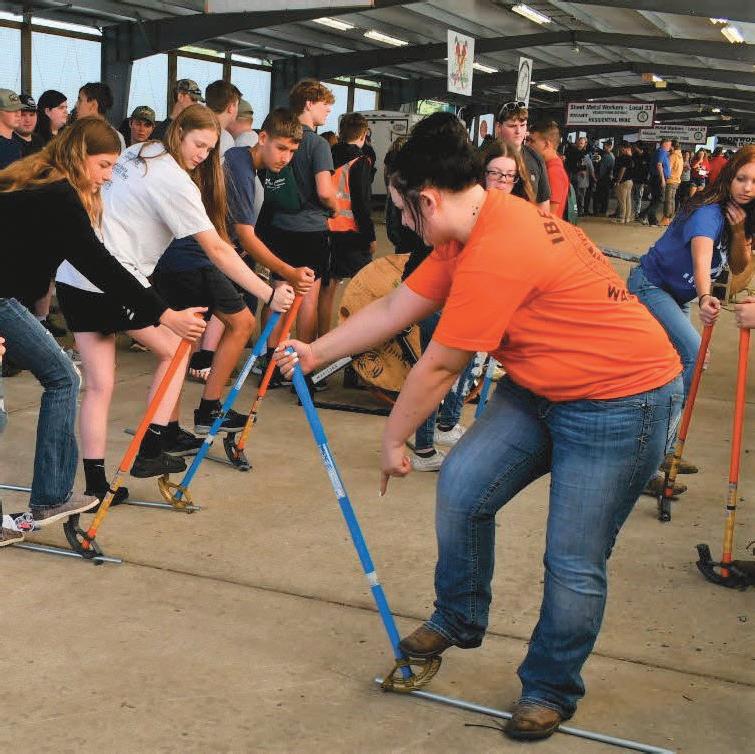

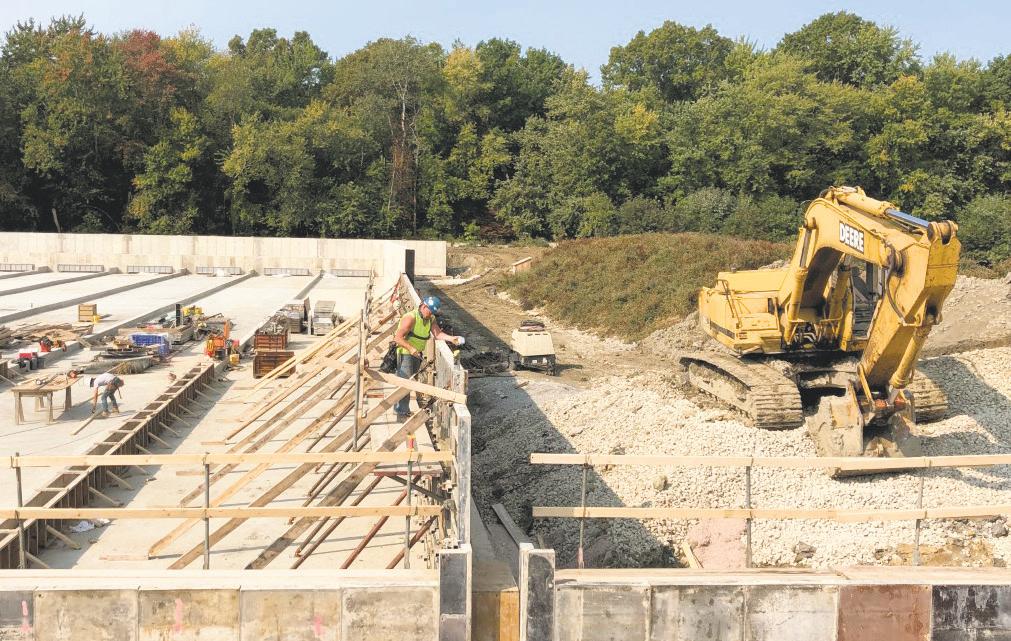
11 Apprenticeship & Career Guide POWER YOUR CAREER IBEW WARREN OHIO ELECTRICAL TR A DES INSTITUTE OFNORTHEASTOHIO ATTITUDE • SKILL KNOWLEDGE APPRENTICESHIP & TRAININGNECA WarrenJATC.org 330-394-3690 YATC.org 330-965-0578 Become a union electrician apprentice. Earn while you learn a lifelong skill with many rewarding career possibilities. APPLICATIONS TAKEN ANYTIME! Learn more at ATradeThatPays.com Operating Engineers
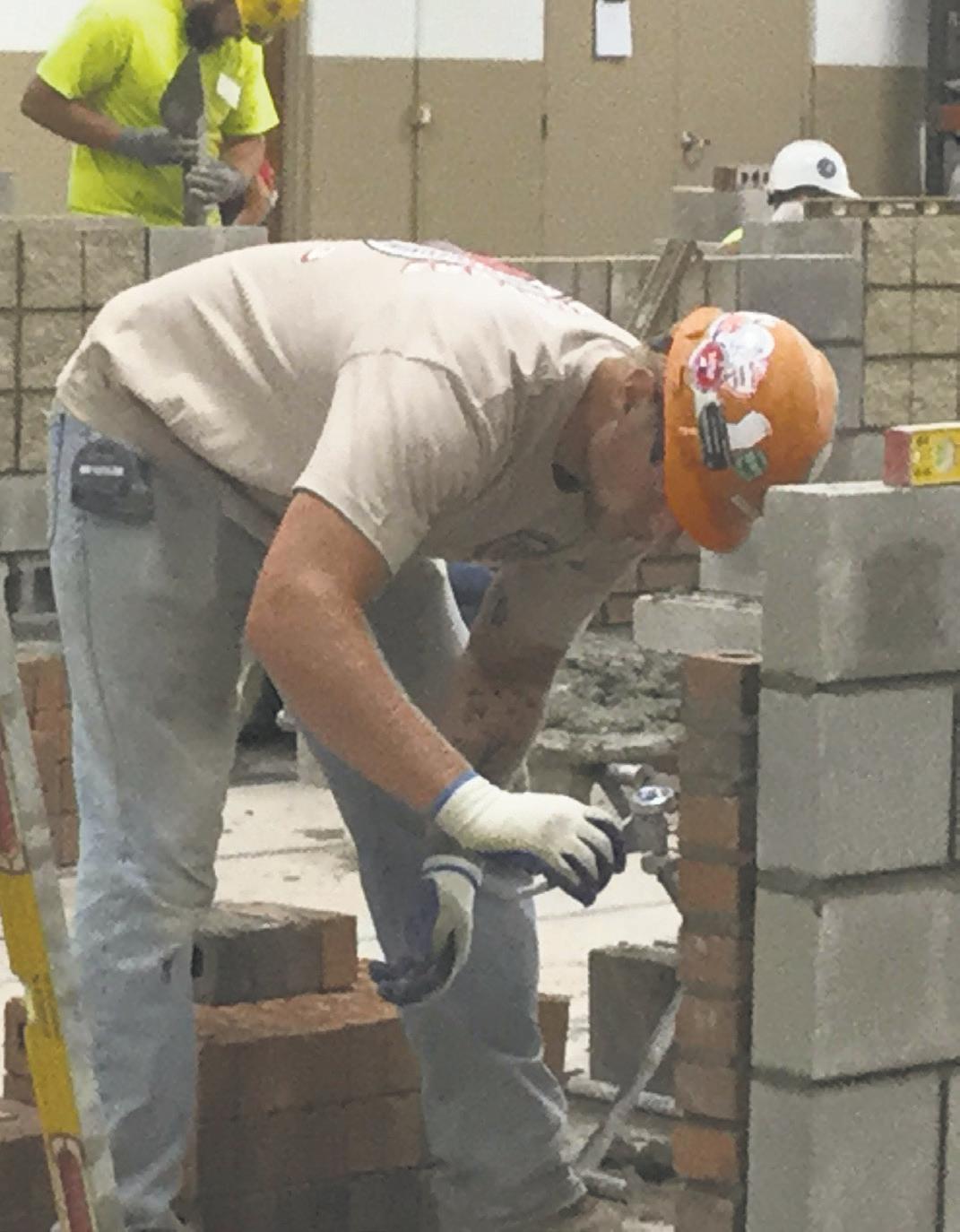
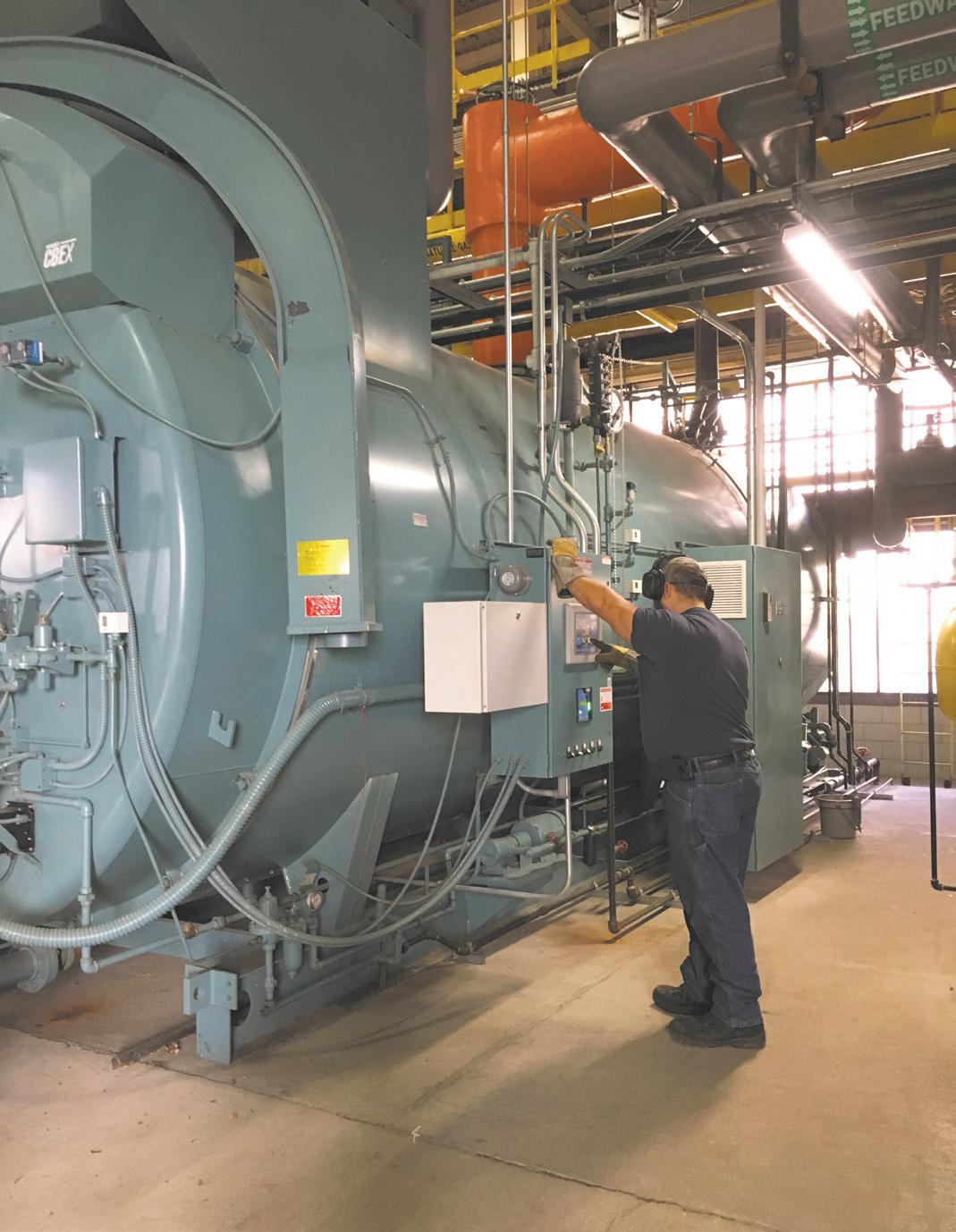
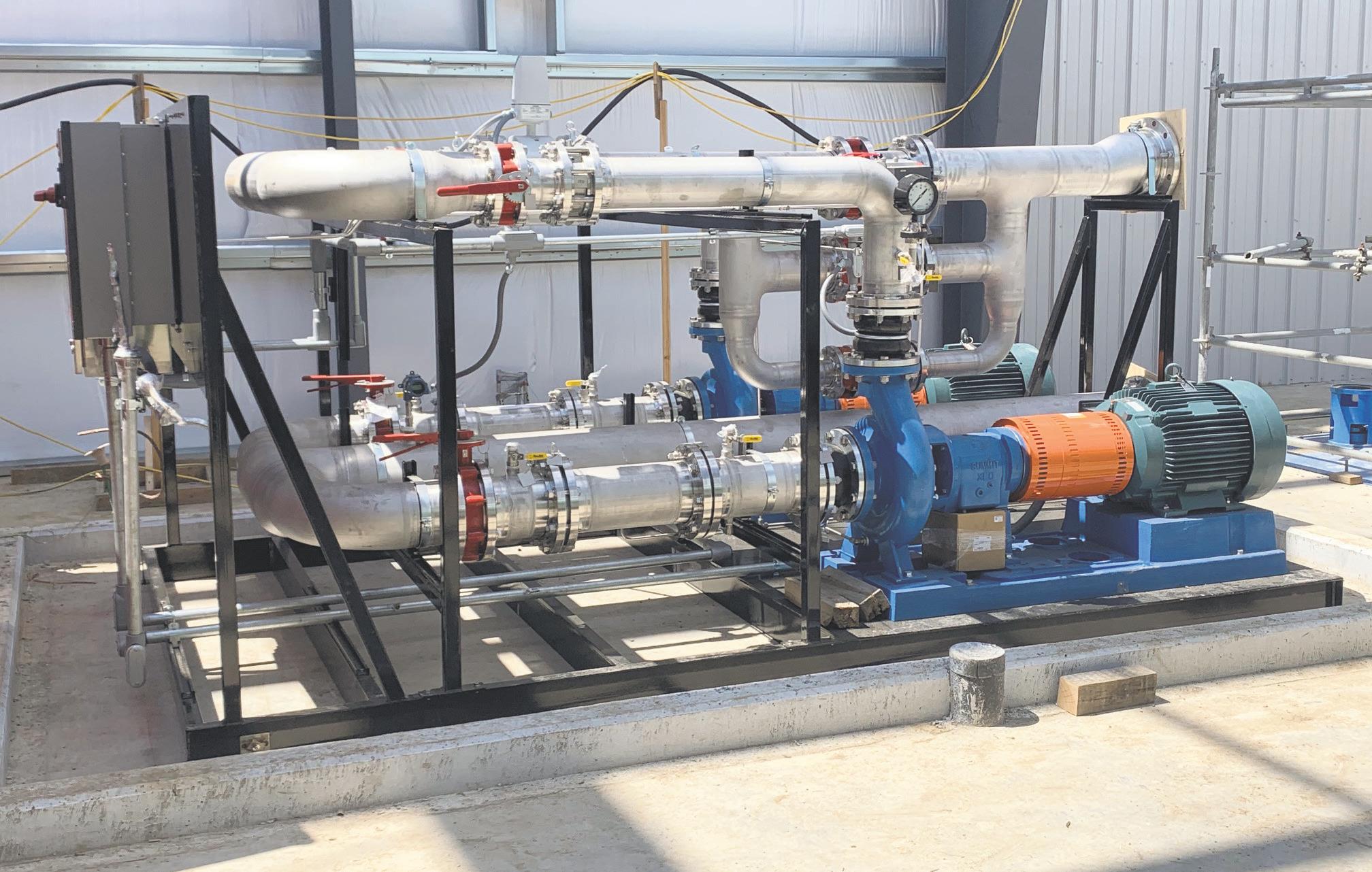
12 Apprenticeship & Career Guide
Pipefitters
Bricklayers
Boilermakers
Continued from Page 5
EXPO
The Mahoning Valley Skilled Trades Expo drew about 5,500 students from Trumbull, Mahoning and Columbiana counties and portions of western Pennsylvania to the Canfield Fairgrounds over two days in September 2023 to learn about the trades, including hands-on through multiple active displays.
For 2024, the expo will be three days to accommodate the interest.
The event “opened a door, a pathway for us to get into the schools and build connections with counselors, build connections with teachers and administrators that we didn’t have in the past,” Hartman said.

It has led to a push for a website and other marketing efforts, “but probably the biggest thing is now we have over 500 kids enrolled in pre-apprentice programs,” he said.
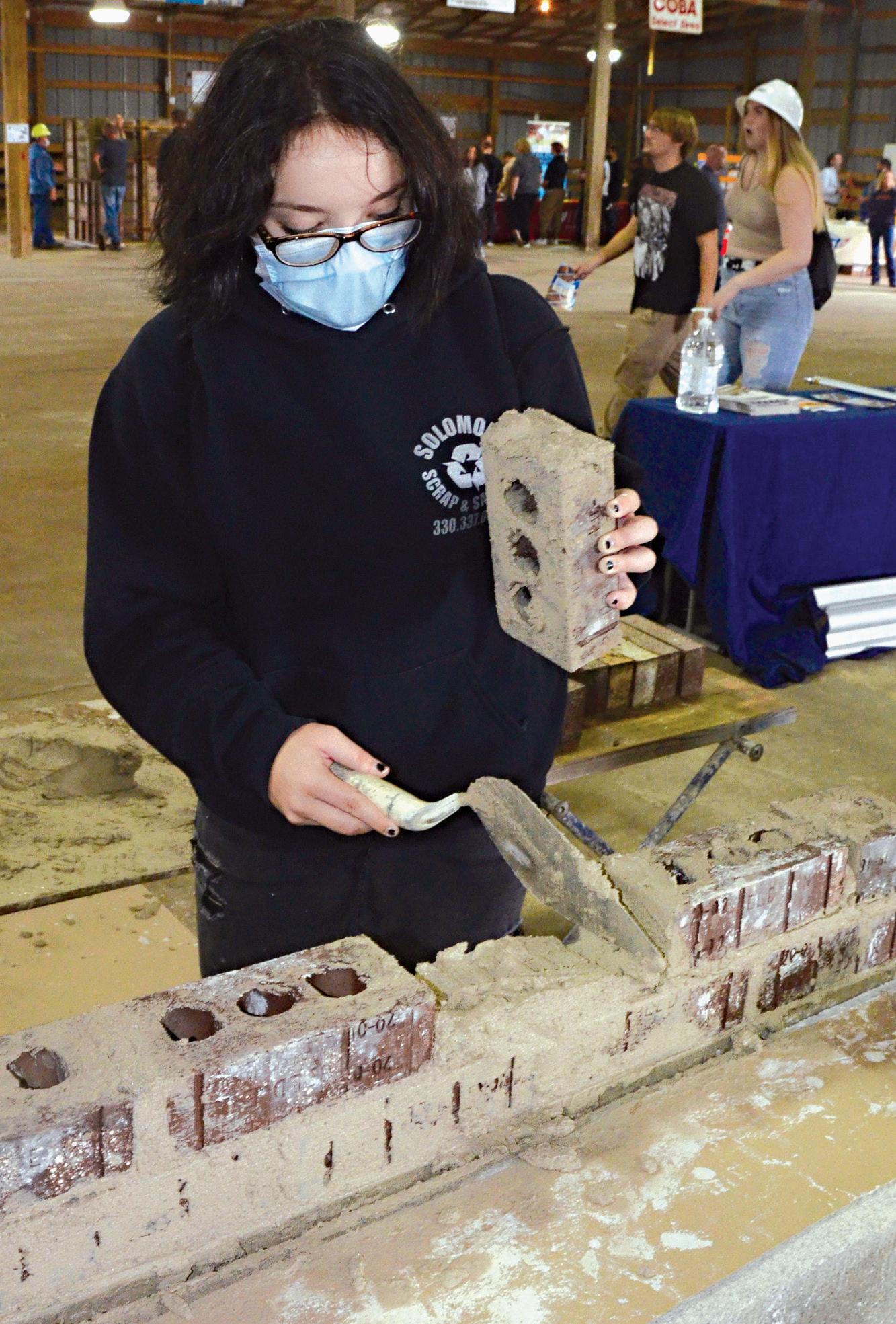
WEBSITE
The website is mvskilledtrades.com.
It’s the information hub about all of the skilled trades in the Mahoning Valley. There, you’ll find information about the multiple trades, including application information, job postings and other career resources.
“What’s really nice about that is you can get information on all the different crafts,” Loney said.
Plus, it’s delivered in a way younger generations access information — on the web, either through a computer or handheld device.
Also, it gives counselors and educators another tool and have valuable information for other young people to find a career path.
SUSTAINED ENGAGEMENT
There’s been progress made, but the idea is to keep going.
One way that can happen is peer-to-peer engagement. In fact, it’s happening already.
Loney said Local 396’s training officer took an apprentice back to his home school to speak with students there.
“When they see it peer-to-peer, it makes it a little bit easier. I think we keep getting our name out there, running commercials, the billboards we have, and you keep that buzz going,” Loney said. “But you also reinforce it by going to them and saying, ‘listen, here is one of your own. You guys know this kid because he just got out of school two years ago, you know him, and here’s what it looks like in his world now.”
Also key, said Hartman, is to stay engaged in partnerships.
“When the door is open (and) you have a seat at the table, make sure you show up for dinner. Don’t take it for granted,” he said, adding the partnership between the builders, the trades and school career counselors and other educators “are just fantastic to bring the opportunities into the schools.”
Pre-apprenticeship programs already exist in schools in Trumbull, Mahoning and Columbiana counties. Part of the wave of effort is to grow into western Pennsylvania with the same sort of programming, Hartman said.
rselak@tribtoday.com
The website mvskilledtrades.com is the information hub about all of the skilled trades in the Mahoning Valley. There, you’ll find information about the multiple trades, including application information, job postings and other career resources.
13 Apprenticeship & Career Guide
Marty Loney
Staff photo / R. Michael Semple
In this photo from September 2021 at the Mahoning Valley Skilled Trades Expo at the Canfield Fairgrounds, Bella Brant, a student at Salem High School, learns techniques to lay brick.
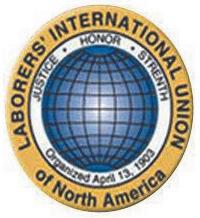
DESCRIPTION
LABORERS’ INTERNATIONAL
UNION OF NORTH AMERICA
Construction Craft Laborers perform a variety of highly specialized tasks that include: electric and pneumatic drills, electric and hydraulic boring ma-chines, setting explosives for heavy construction, using laser guidance equipment for pipe placement, and utilizing surveying and measuring devices. As construction becomes increasingly computerized, construction laborers also control high-tech input devises like GPS and robotic pipe cutters. Construction la-borers work jointly carrying out assigned construction tasks or may work alone, reading and interpreting blueprints and specifications with little or no supervision.
Building construction requires construction laborers to prepare and place foundational footings. Additionally, they erect a majority of scaffolding used to perform vital building tasks. Construction laborers handle operate machines; for example, they mix mortar or operate a machine that pumps concrete, grout or cement. At hazardous waste sites, construction la-borers prepare the site and safely remove asbestos, lead mold, and other hazardous materials. Construction laborers operate, read, and maintain air monitoring and other sampling devices.
At heavy and highway construction sites, construction laborers place and slope concrete and asphalt on roadways, and install sewer, water, and storm drain pipes. To prepare highway work zones, construction laborers control passing traffic and install barricades, cones, and markers.
At pipeline or transmission construction sites, construction laborers clear the right-of-way, install engineered erosion control products, rigging, sandblasting, coating, and cathodic protection. Also, at gas distribution construction sites, construction laborers locate underground utilities, perform pipe fusing, residential and commercial meter installations, traffic control, and project restoration.
APPRENTICESHIP
The purpose of the apprenticeship program is develop a qualified, versatile, and safe construction laborer. Contractors must have a skilled and safe workforce to produce a quality project at a competitive price for project owners. The apprenticeship program consists of 4,000 hours of on-the-job experience and a mini-mum of 432 hours of classroom related training before graduating as a Journeyper-
son. As an apprentice, you will be employed by a signatory contractor who will pay you an appropriate wage and benefit package, and you’ll be working side-by-side with a qualified Journeyperson.
• Age Requirements: 18 years old
• Proof of H.S. Completion or GED
• Driver License or Photo ID
• Must pass written exam
• Must pass oral exam
• Must pass drug screen
• Applications will be accepted as needed
SPECIALTY TRAINING
Like any industry, construction continues to evolve and change. Work opportunities that were once plentiful may decrease over time, while jobs we hadn’t dreamed of may suddenly be in high demand. That is the power of training, no matter how much construction changes LIUNA training makes sure our workforce stays ahead of the curve. The power of specialty training can also build a recession-proof career for la-borers. From accredited curriculum to instructor certification, our training center has the programs and services to meet the needs of laborers, union contractors and the industry. Additionally, our partnership with the Cuyahoga Community College enable a laborer to reach three benchmarks: Journeyperson Laborer, a Certificate of Proficiency from Tri-C, and an Associate Degree in Construction Technologies.
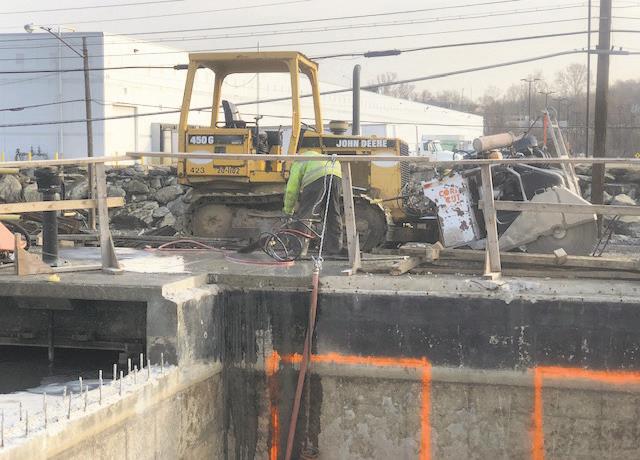
14 Apprenticeship & Career Guide Laborers’ International Union of North America 905 16th Street, Northwest Washington, DC 20006
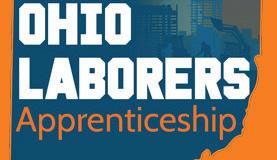

DO YOU WANT TO MAKE REAL MONEY NOW ?
DO YOU VALUE A HARD WORK ETHIC?
DO YOU DOUBT THE TRADITION OF A FOUR YEAR UNIVERSITY ?
DO YOU CRAVE A SENSE OF OWNERSHIP?

WHO WE ARE
Ohio Laborers’ Training and Apprenticeship Program is the training arm of the Laborers’ District Council of Ohio. We offer the best in apprenticeship training and your continuing education of highway, building, environmental, and utility construction.
TRAINING
WHY APPLY?
Great Pay
Job Security
Sense of belonging


As a Laborer Apprentice, you will receive 144 hours of related classroom training per year. For a total of 432 in-classroom hours, and 4000 hours of hands-on, on-the-job training.
Medical and Pension Insurance
Advancement Opportunities
No additional cost for training
APPLY ONLINE TODAY
Visit oltapp.com/apply-now for more information
15 Apprenticeship & Career Guide
Union Apprenticeship Program
Laborers’ Local 125 YOUNGSTOWN, OH 44512 Laborers’ Local 809 STEUBENVILLE, OH 43952 Laborers’ Local 935 WARREN, OH 44481
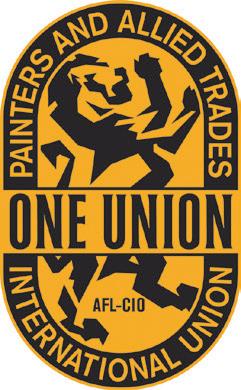
PAINTER/ TAPER/ GLAZIER
International Union of Painters and Allied Trades (IUPAT)
7234 Parkway Drive Hanover, MD 21076 410-564-5900, mail@iupat.org
Finishing Trades Institute (FTI)
7230 Parkway Drive Hanover, Maryland 21076 800-276-7289, finishingtradesinstitute@gmail.com
• Applications: Call for information
• Requirements: High School Graduate or GED
• Age: Required must be 18 years of age or older
• Testing: No/No testing fee
• Length of program: 3-4 year programs
• Drug Testing: Prework if Required by Employer
DESCRIPTION
Commercial & Industrial Painters apply paint, stain, varnish, and other finishes to residential, commercial and industrial structures. They are able to choose the right paint or finish for the surface to be covered by taking into account durability, ease of handling, method of application and customer desires.
Drywall finishers (or tapers) prepare unfinished interior or drywall panels for painting by taping and finishing joints and imperfections.
Glaziers (Architectural metal and glass workers) are responsible for selecting, cutting, installing and replacing all types of glass used in construction. Glaziers also work on the glass exteriors of large commercial buildings.
Sign and Display Workers make signs which are designed for advertising - both standard billboards and more complex, lighted billboards. They also set up and dismantle the display booths which are used to provide information at trade shows.
APPRENTICESHIP
All apprenticeship programs incorporate skills training with safety and health training. Apprentices are taught about the International Union of Painters and Al-lied Trades (IUPAT) and how the union operates. All apprentices are paid and receive regular raises during the course of their apprenticeship. Glaziers, Painters, Sign and Display Workers, and Floor Coverers participate in a four-year apprenticeship, and Drywall Finishers have a three-year apprenticeship.
SPECIALTY TRAINING
Painters and Allied Trades may participate in instructor training and can work towards getting a college degree. Members may also take classes and earn college credit at the George Meany Center in subjects such as labor law and contract negotiations. IUPAT sponsors over 55 Job Corps programs throughout the United States. Individuals that complete this program are then eligible to enter an IUPAT apprenticeship program.
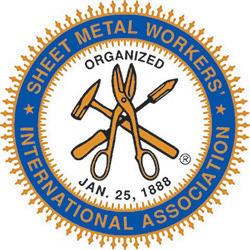
Sheet Metal Workers’ International Association
1750 New York Avenue, NW Washington, DC 20006
www.smwia.org
www.smwlu33.org
• sheetmetal_iti.org
DESCRIPTION
Sheet metal workers perform all types of tasks using metal. They design, fabricate and install heating, ventilating, and air conditioning systems. When an air conditioning system breaks or has problems, it is the sheet metal workers who use computers to troubleshoot the problem and then perform the service work to correct it. Sheet metal workers are responsible for the stainless steel cabinets and countertops you see in restaurants and cafeterias.
APPRENTICESHIP
The apprenticeship program for sheet metal workers combines on-the-job training with classroom instruction, which takes place at state-of-the art JATC owned facilities or in the vocational training departments of local school and/or community colleges.
Each JATC program has its own computers, which allows the JATC to deliver training, monitor progress, and communicate with other apprenticeship programs through the ITI home page.
The apprenticeship program lasts five years, during which you receive wages and benefits as well as top-ofthe-line instruction at no cost! In your fist and second year, you will learn about drafting, sheet metal tools, safety procedures, pattern layout and development as well as how mathematics apply to the trade. In your third year, you will work more on your own, and will learn how to about installing HVAC equipment, welding, hoisting and rigging, and retrofitting environmental systems. Finally, in your fourth year, you will be taught about fine tuning HVAC systems and welding techniques. By the end of your fifth year you attain journeyperson status!
SPECIALTY TRAINING
At the International Training Institute (ITI), which is jointly sponsored by labor and management, you have the opportunity to take advanced courses of training in a variety of areas, such as HAZMAT, con-fined spaces, and advanced welding. There is also the opportunity to work towards an associate’s degree. ITI has an online university, which allows for distant learning.
Sheet Metal Workers have the opportunity to become an apprentice instructor or training administrator. They can train to be Service Work Technicians and/or Certified Welding Inspectors.
16 Apprenticeship & Career Guide
SHEET METAL WORKERS
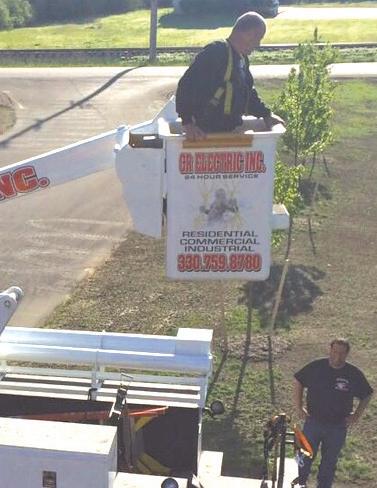
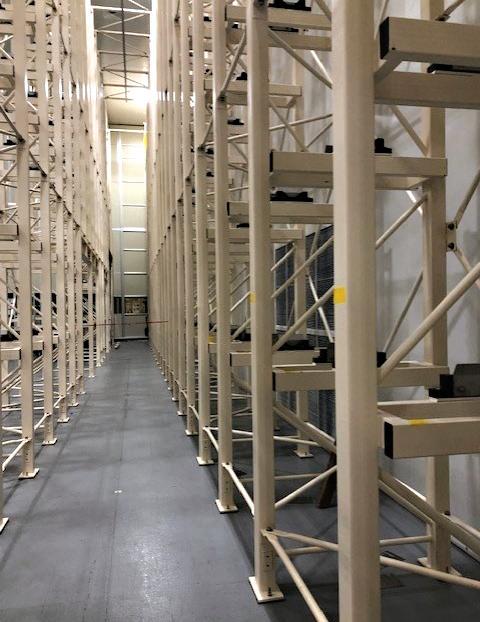
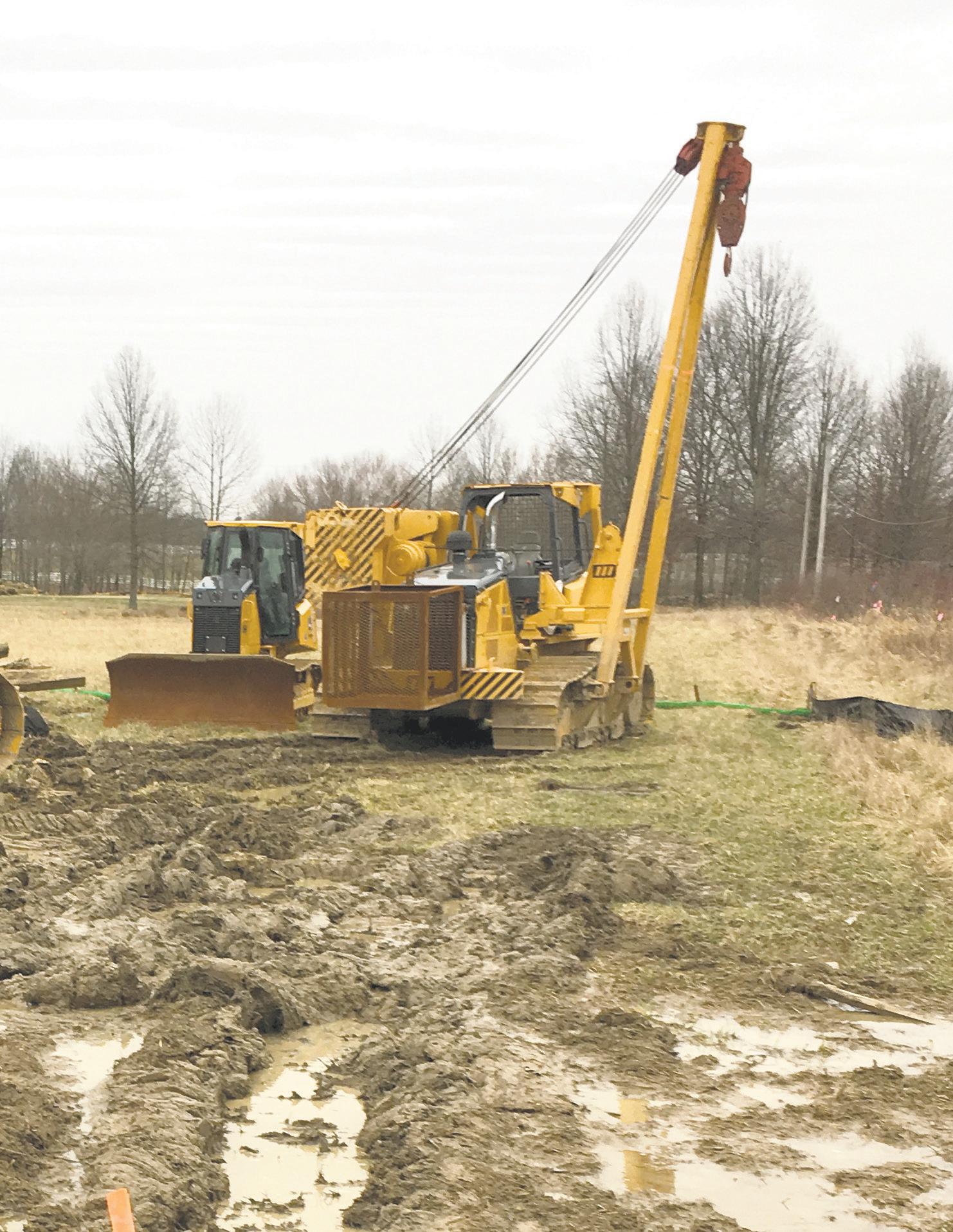
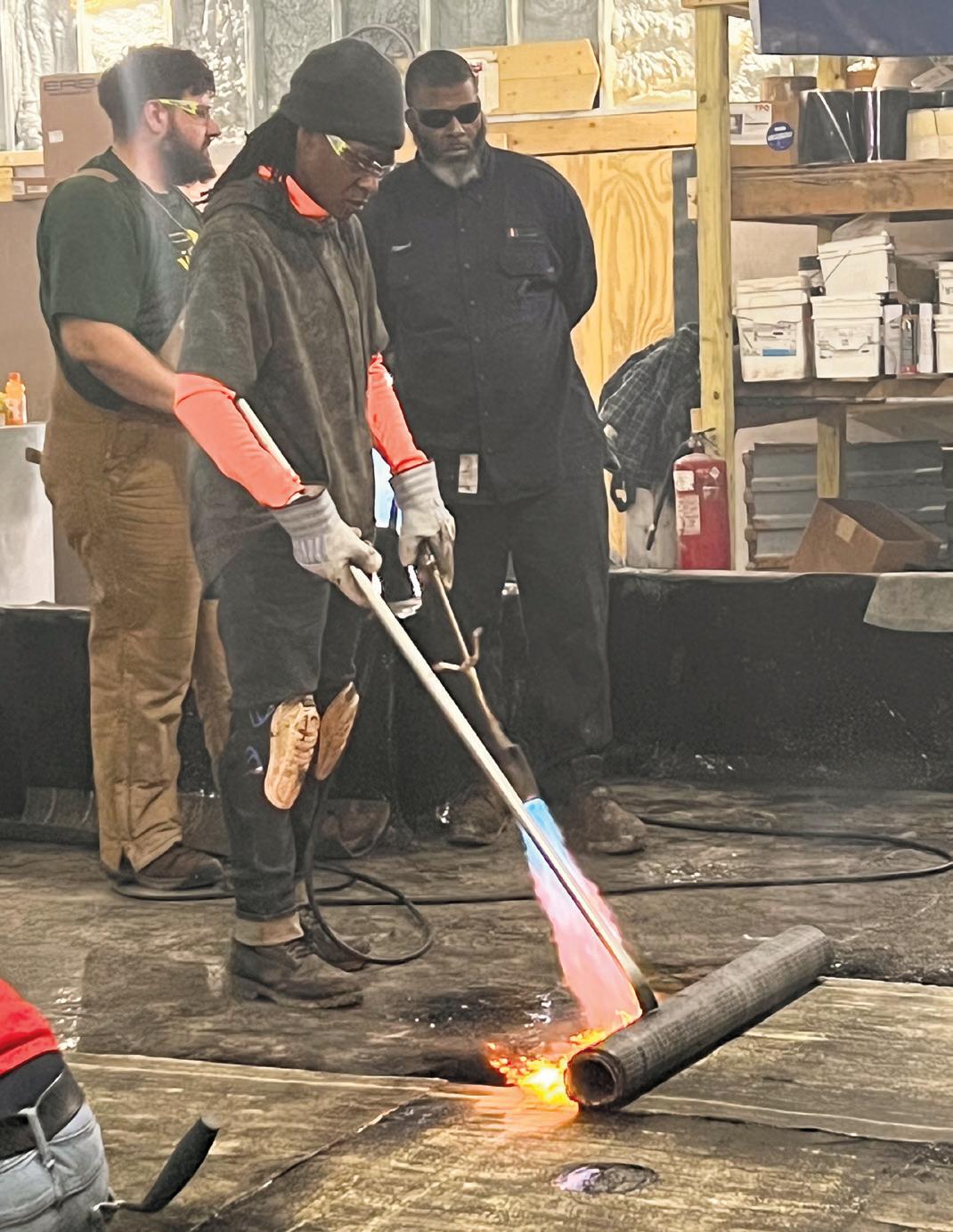
17 Apprenticeship & Career Guide-----
Operating Engineers
Roofers
Electricians
Iron Workers

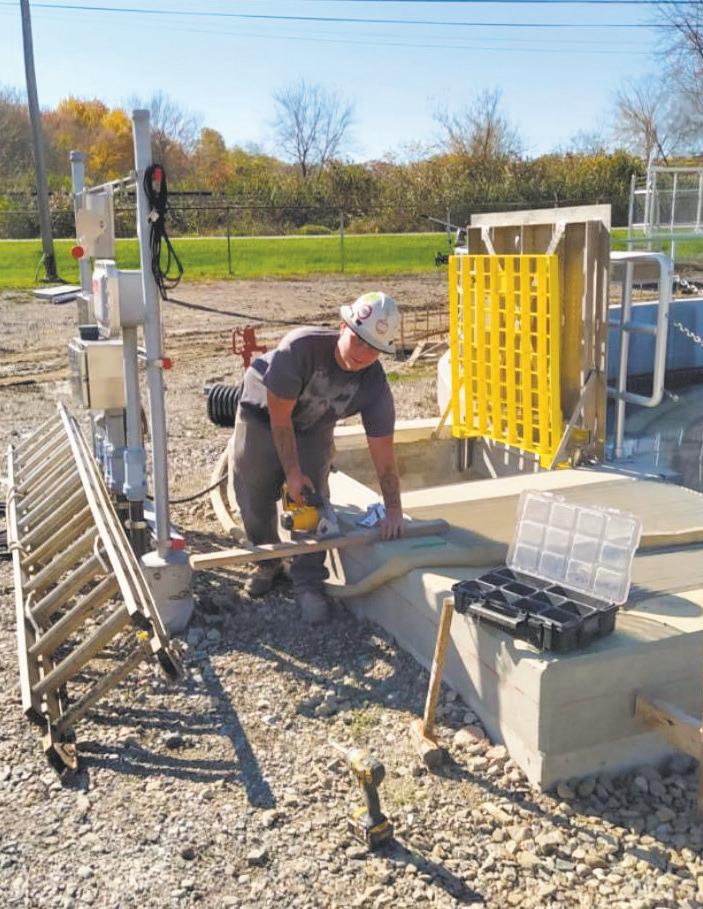
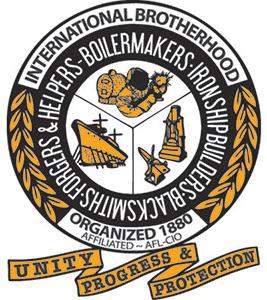
BOILERMAKER
1017 North 9th Street, Kansas City, KS 66101
(913) 342-2100
www.boilermakers.org
• Applications: Taken the third Wednesday of each month 9-11 A.M. and 1-4 P.M.
• Fee: No
• Information needed: High School diploma or GED, birth certificate, documentations of welding certificates (test papers)
• Testing: Yes
• Length of program: 4 years
• Drug testing: Yes
• Other information: Jurisdiction is in 17 counties in Ohio and 2 in PA. On call 24 hours a day, 365 days a year. We work in confined spaces and high heights. Indoors and outdoors
SPECIALTY TRAINING
The Boilermakers Union has a National Training Complex in Kansas City, Kansas, to supplement training at the local and regional levels. Instructors at the National Training Complex teach all boilermaking skills for journeyman upgrading. They also offer foreman and apprentice instructor training. In addition, the apprenticeship program has seven state-of-the-art mobile training centers that can go where needed. The Boilermakers also participate in the MOST (Mobilization, Optimization, Stabilization) Fund, a joint labor trust fund that provides manpower in areas of need, trains craftworkers in new skills and technology, and instructs and teaches safe work habits.
APPRENTICESHIP
Today’s field construction boilermaker is involved in more than just the construction of boilers. Apprentices are a vital part of construction project teams that erect pressure vessel assemblies and fabricate metal plate. You could be involved in the installation of a giant superheater section in a large utility boiler, the erection of a 750,000 gallon water storage tank, the placement of a nuclear power plant reactor dome, or the construction of components on a hydroelectric power station. Some of the tasks performed by apprentices are burning, gouging and welding, removing and replacing tubes, and the laying out, aligning and fitting of components. You will take classes in subjects like Advanced Access Structures, Rigging Prints, Mathematics for Layout &Printing, and Drawing Interpretations, Metallurgy, and Testing of Materials.
18 Apprenticeship & Career Guide
Carpenters
Boilermakers

DESCRIPTION
HEAT & FROST INSULATORS
• Fee: No
• Age Requirements: 18 years old
• Drug testing: No
• Info needed: High school transcripts & diploma or GED, drivers license
Insulation workers install many different types of insulating materials for basically five purposes: to prevent heat transfer, to conserve energy, to retard freezing, to protect personnel from burns and to control fire hazards. Today, insulating materials are used in energy conservation efforts to increase operational efficiency and reduce fuel costs. Insulation is installed using a variety of techniques-stapling, wiring, pasting or spraying - depending on the type of surface to which the insulating material is being applied.
SPECIALTY TRAINING
• Applications Accepted: Online at www.local84.com or in person with a scheduled appointment.
• Requirement: Must be a resident of 1 of 16 counties Local 84 covers.
APPRENTICESHIP
The program emphasizes on-the-job training and classroom instruction, the use of textbooks and other course materials. As an apprentice, you will be em-ployed by an insulation contractor who will pay you an appropriate wage and benefit package. You will be working side by side with a qualified mechanic on those job sites. You will be attending classes taught by highly qualified instructors. Upon completion of your apprenticeship, you will be required to take an examination to demonstrate your mastery of the knowledge and skills you’ve been taught.
The workers must be trained and certified in Fire Stop. This training is required by both Federal and State laws. Insulator instructors attend annual training conferences where they are taught the latest technologies within the industry. Classes are then provided for the Local Union’s members to stay abreast of the constant changes within the industry.

Right now is the time to discover the opportunities for a great career as an insulator. Insulators Local 84 in the Youngstown/Akron areas is offering an apprenticeship that will lead someone into a successful career where they will experience continuous growth, great benefits, livable wages, and long term job security.
Through Insulators Local 84 Joint Apprenticeship and Training Fund (JATF Apprenticeship). Apprentices will receive industry leading training and become a master in the insulation industry in one of the skilled trades:
• Mechanical Insulation
• Firestopping
• Sound Attenuation
• Specialty Fabrication
Earn a livable wage, receive benefits, have long term job security, and work towards retirement, all while learning a craft debt free.
Apply at
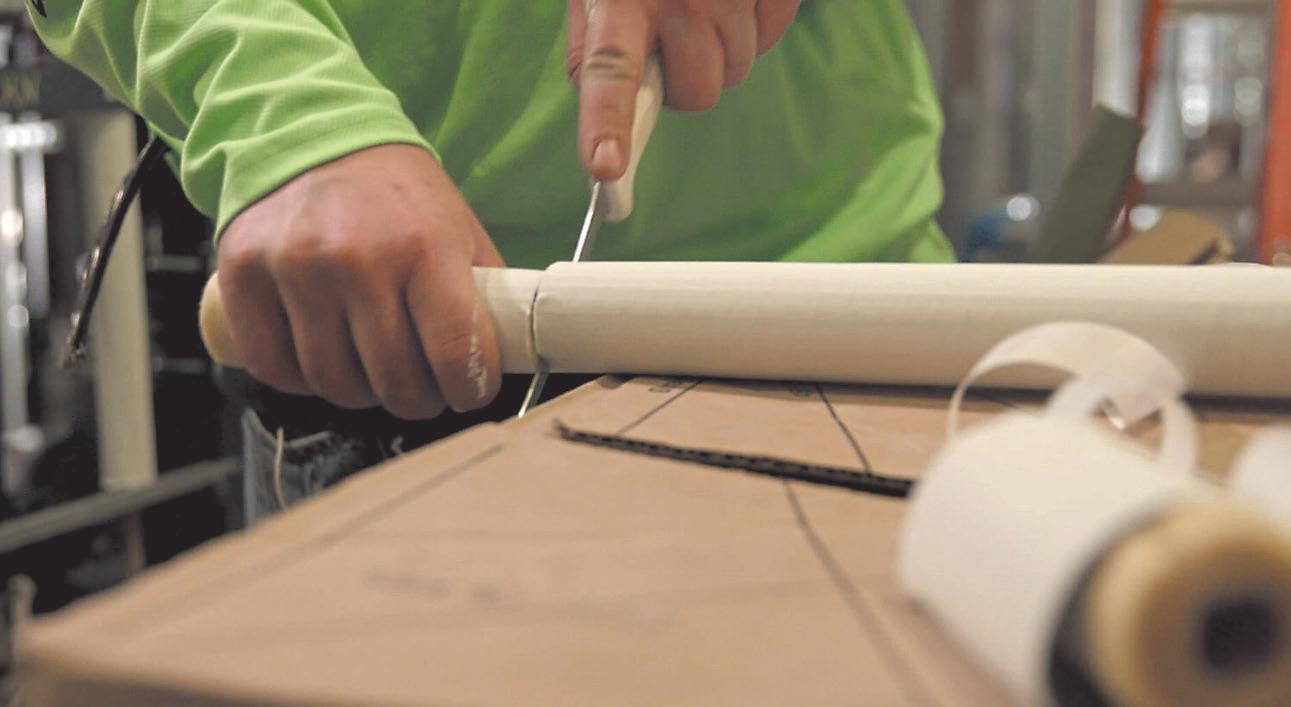
19 Apprenticeship & Career Guide International Association of Heat and Frost Insulators & Allied Workers 9602 M L King Highway, Lanham, MD 20706 www.insulators.org
www.local84.com 277 Martinel Drive Kent, OH 44240 • 330-346-0622

• Fee: $45
United Association of Journeymen and Apprentices of the Plumbing and Pipefitting Industry of the United States and Canada
901 Massachusetts Avenue, NW Washington, DC 20001 • www.ua.org
• Age Requirements: 18 years of age by June 1 of the year applying.
• Drug Testing: Yes
• Test: Yes
• Length of program: 5 year program
• Applications: Apply online at www.ualocal396training.org
• Information needed: High school transcripts or GED and Valid State I.D.
• Requirements: Must be able to attend classes two nights a week at our Boardman Training Center from September - May
DESCRIPTION
UA members (plumbers, pipefitters, sprinklerfitters, refrigeration fitters, and service technicians) are involved in just about every aspect of construction involving piping from the space program to nuclear power houses to refineries to shipbuilding. UA craftsmen ply their skills in commercial, industrial and residential arenas.
APPRENTICESHIP
Individuals who enter a United Association five-year apprenticeship program are men and women motivated to learn a complex and challenging trade. UA apprentices learn through both class-room and on-the-job training in what is considered by many to be the best construction industry apprentice program in the world. The five year apprenticeship period is divided into one-year segments, each of which includes a minimum of 1600 hours of “on the job training” and 230 hours of “related technical instruction.”
All UA apprentices receive a strong general education background in the trade, with core courses in basics such as mathematics and drawing. At a certain point, apprentices can choose a specific path to follow, to become trained as a journeyman plumber, pipefitter, sprinklerfitter, service mechanic, and so on. All training programs are run through United Association Local Joint Training Committees and are overseen by National Joint Training Committees.
SPECIALTY TRAINING
Certification Programs include valve repair, medical gas installation, welding, and CFC removal. UA instructors must be kept abreast of any technological changes. The UA has developed a program of instructor education consisting of five one-week sessions over a period of five years.
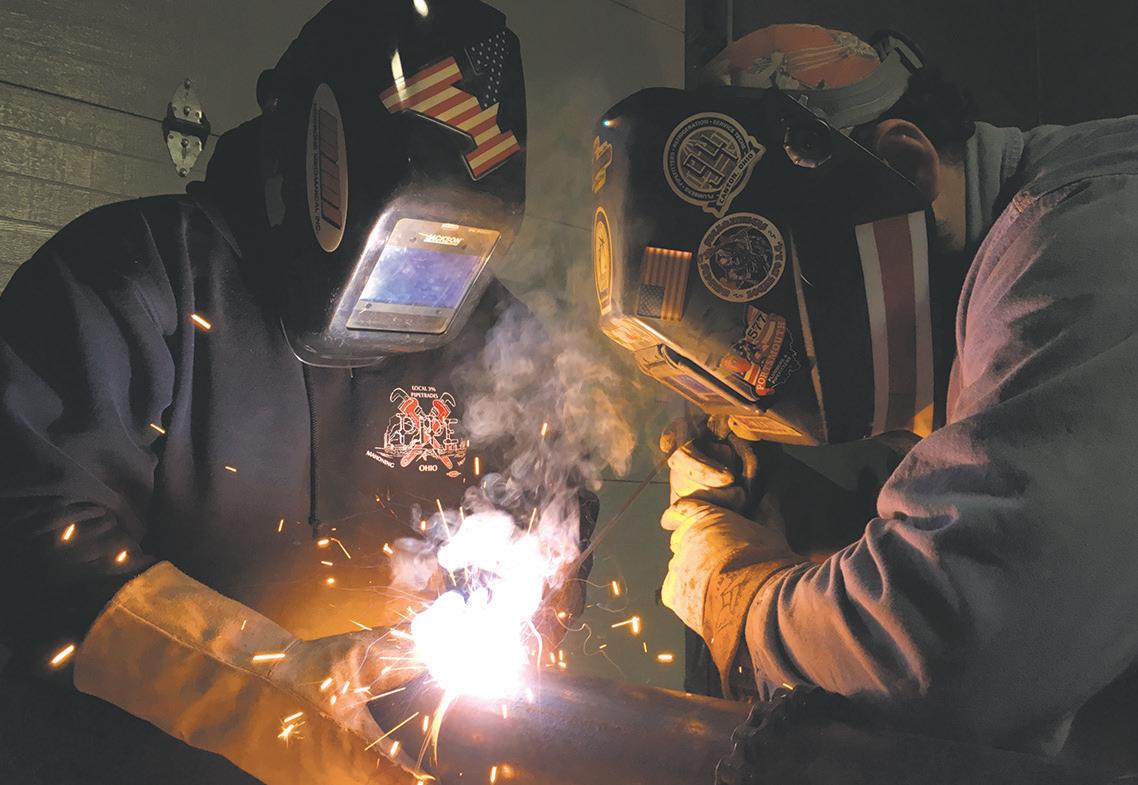
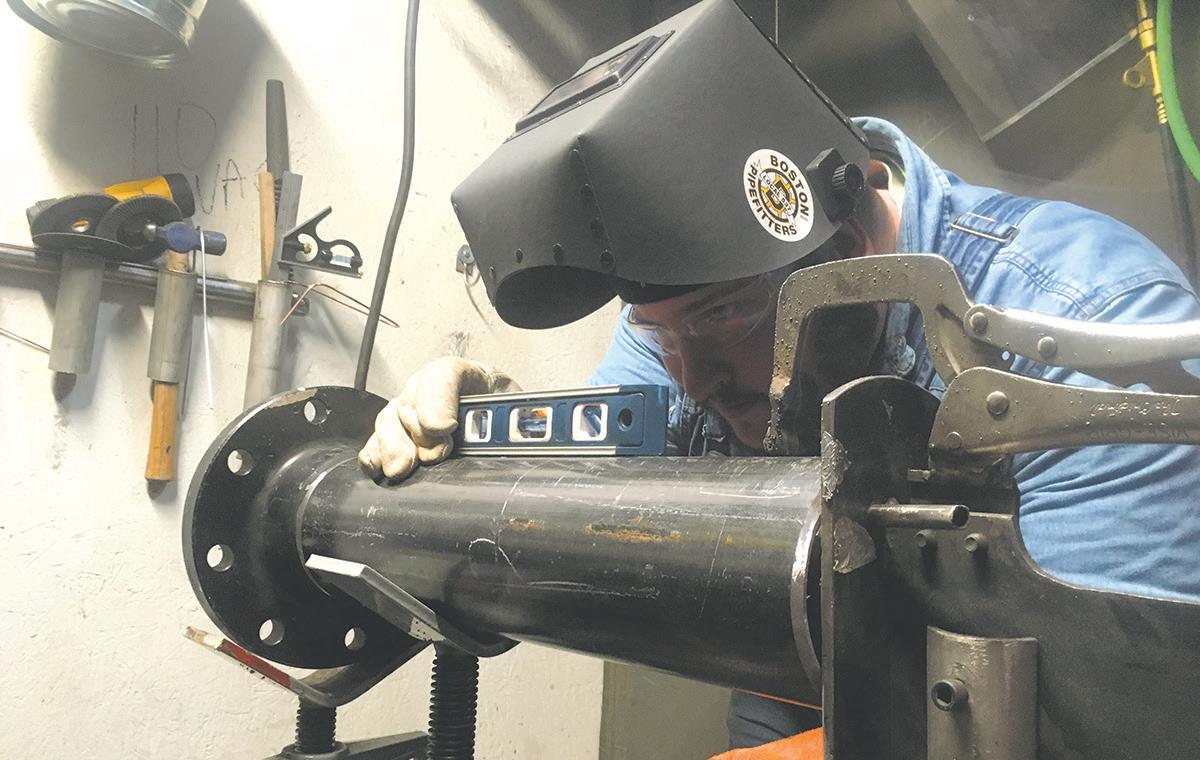
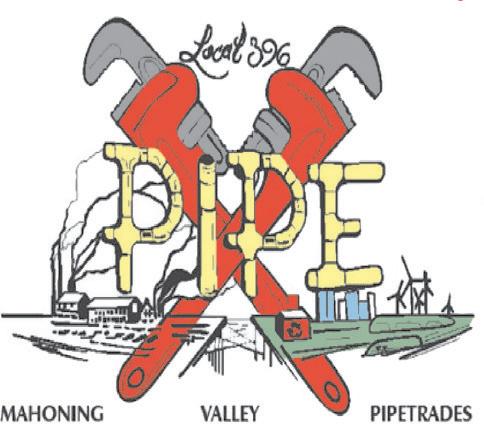

20 Apprenticeship & Career Guide
PLUMBER / PIPEFITTER Plumbers & Pipefitters APPRENTICESHIP OPPORTUNITIES Local Union #396 BOARDMAN, OH Marty Loney Business Manager Rick Boyarko Apprentice Coordinator 330-758-4596 Local Union #495 STEUBENVILLE, OH Chad Walker Business Manager Isaac Evans Apprentice Coordinator 740-439-3623 Plumbing • Pipefitting • Welding Refrigeration • Heating • Air Conditioning
ROOFER
1660 L Street, NW, Washington, DC 20036
www.unionroofers.com
DESCRIPTION
Roofers and Waterproofers work on a variety of types of buildings, protecting those facilities against water intrusion and ultimate damage to the structure and its contents. Roofing in the commercial and industrial sector is generally of the built-up type or the single-ply category. In built-up roofing, layers or piles of felt are set in hot bitumen over insulation boards to form a waterproof membrane. A separate category of roofing is the modified bitumen system that may be applied with hot bitumen or torched-on with high in-tensity propane burners.
APPRENTICESHIP
Apprenticeship programs sponsored jointly by labor and management on the local union level supply employers with the highly skilled workers who apply the quality roofing and waterproofing systems that keep America’s buildings dry. Apprentices learn their craft by training on the job under proper supervision and by studying technical subjects related to the roofing trade. Once apprentices have learned the practical and technical aspects of the work, they graduate to journeyman status. Roofing apprenticeship programs generally run for three years.
SPECIALTY TRAINING
Local unions offer additional job training through journeymen continuing education programs. Instructor training seminars are offered at district council meetings to sharpen instructors’ skills in writing objectives, lesson plans and outlines. The International Union is developing seminars for apprentice instructors covering the principles of teaching methods and the use of lectures, visual aids, discussions, testing, interactive teaching and hands-on projects. The Roofing Industry Partnership for Safety and Health is a program sponsored by labor, management and the government. It promotes safety by offering roofing contractors a package of incentives designed to improve their safety performance..
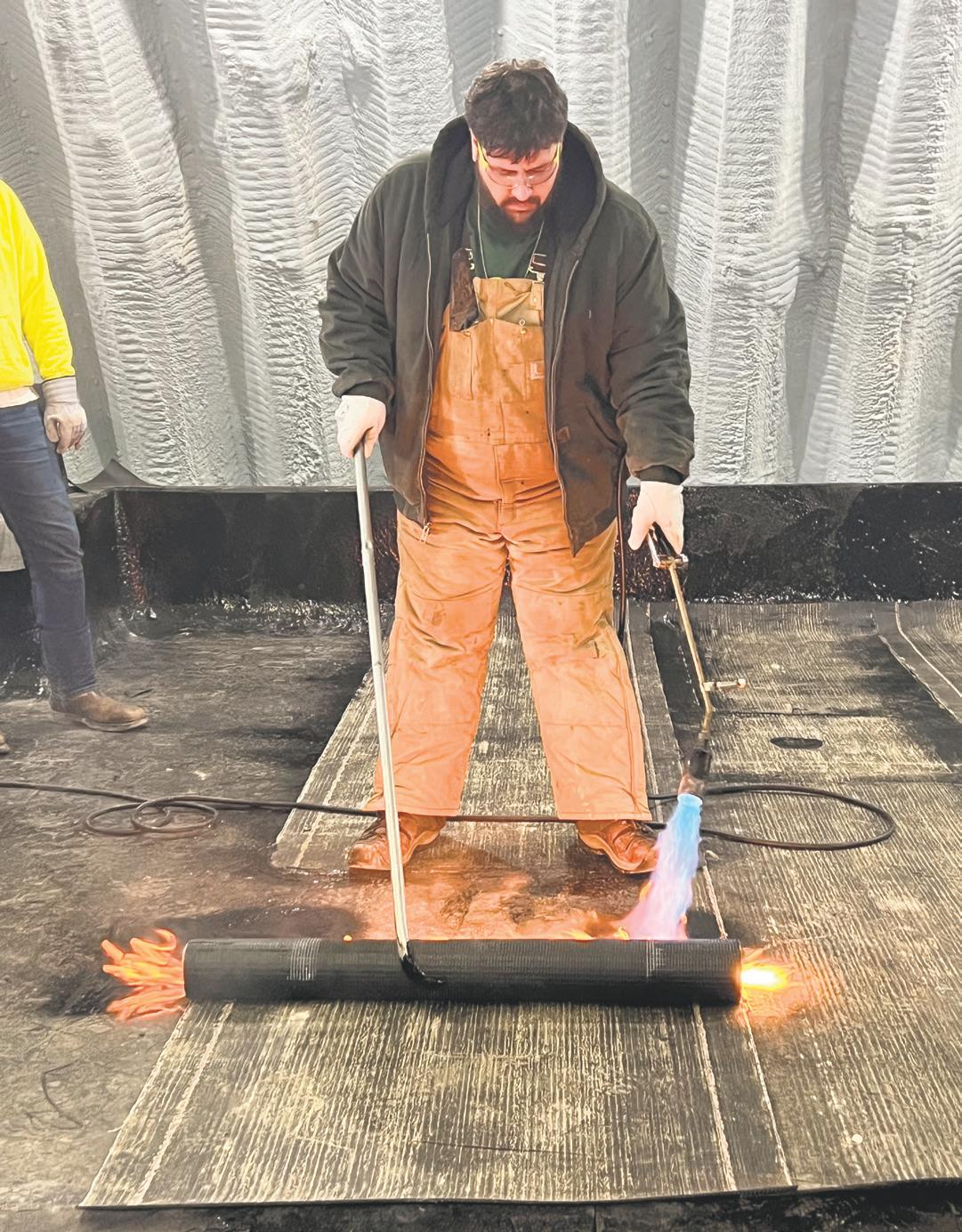
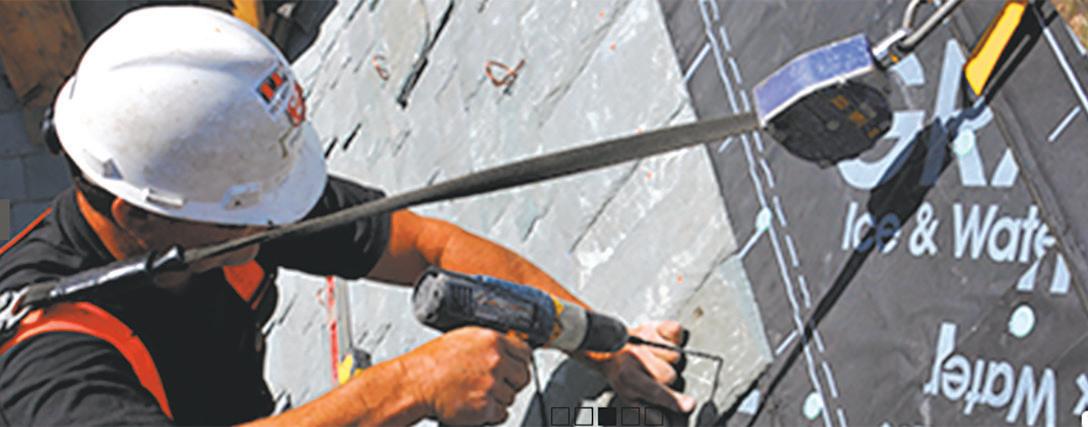
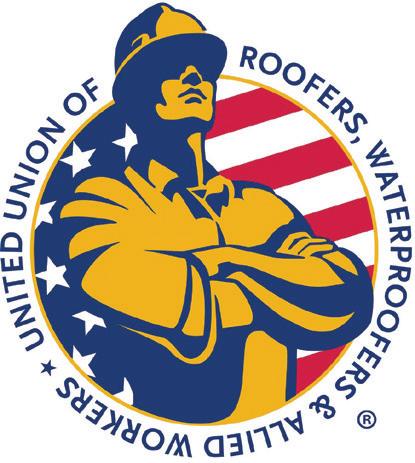
21 Apprenticeship & Career Guide
United Union of Roofers, Waterproofers and Allied Workers (Roofers)
CONTACT: Nancy Weibel Local 71 Business Manager & Financial Secretary 330-746-3020 2714 Martin L. King, Youngstown, OH 44510 HIRING ROOFERS Apprenticeships Available Earn While You Learn
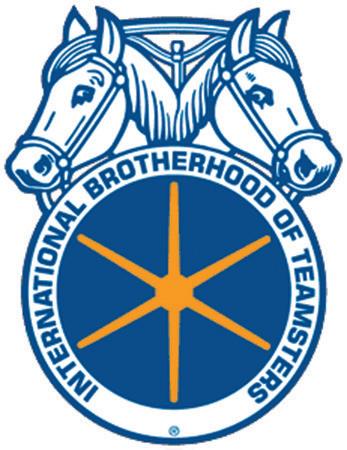
TEAMSTER
International Brotherhood of Teamsters
25 Louisiana avenue, NW, Washington, DC 20001 (202) 624-6885 www.teamster.org.
DESCRIPTION
The Construction Teamster is a truck driver whose job can be quite diversified, depending on the size of the contracting firm for whom he or she is employed. Teamsters skillfully operate a variety of trucks, including flat beds, tandems, ready-mix and dumps. Construction teamsters are an important part of a construction team because they are responsible for delivering the materials to the jobsite.
APPRENTICESHIP
Properly trained drivers are the key to truck safety. Apprenticeship programs are available in both the United States and Canada. Some of the course that construction truck driver apprentices take include Tractor Trailers, Forklift Safety, CPR, Hazard Materials Awareness, Vehicle Mechanics, Truck Cranes, and Warehouse Operations. In the first year of apprenticeship, participants usually take Basic CDL (Commercial Driver License) training. Apprentices must complete 2,400 hours of onthe-job training to earn journeyworker status
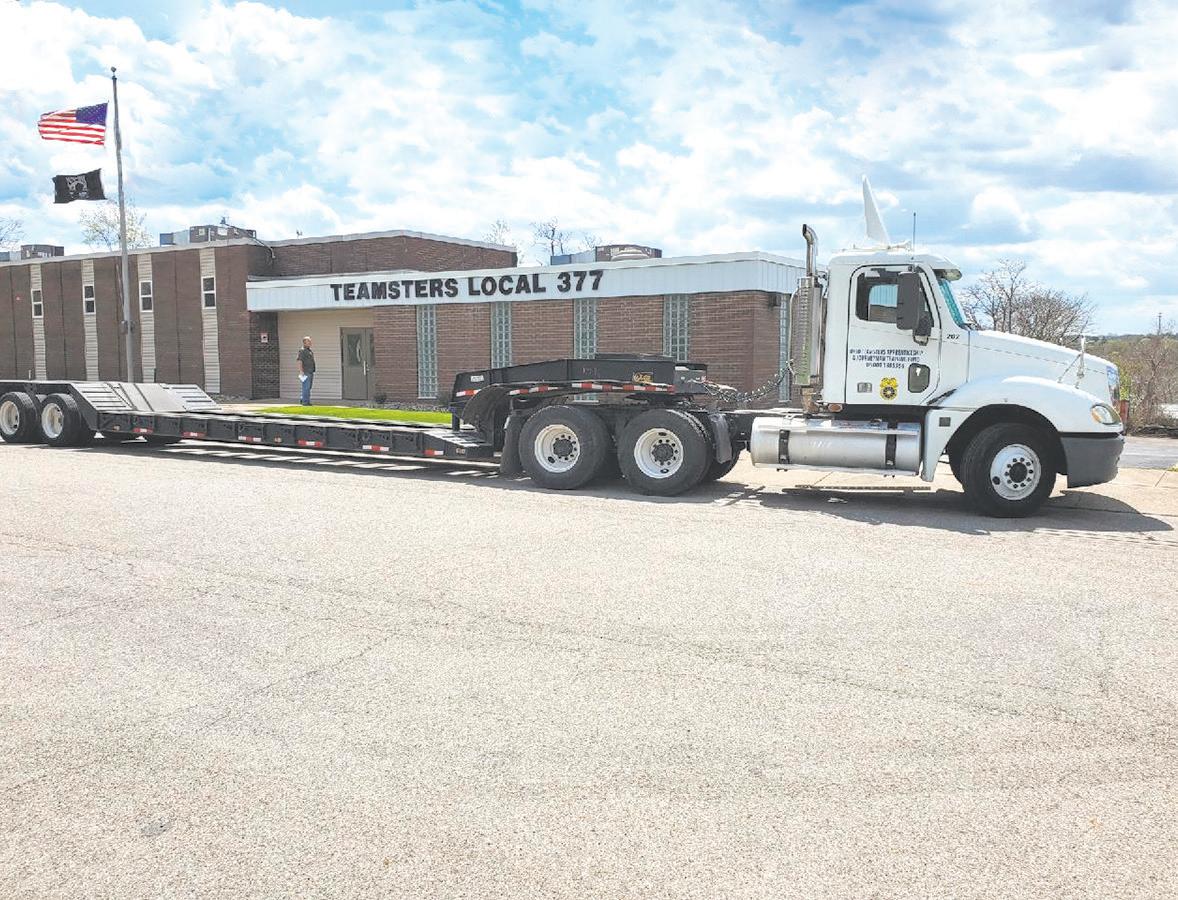
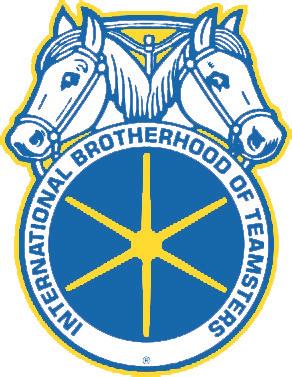
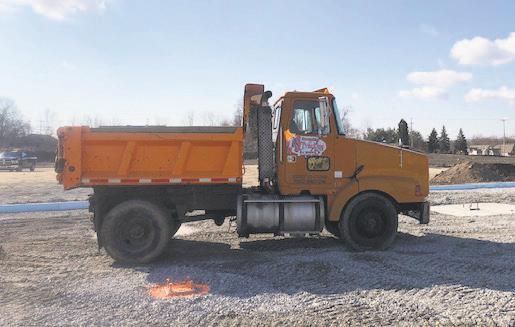
22 Apprenticeship & Career Guide
1223 Teamster Dr., Youngstown, OH 44502 TEAMSTERS LOCAL #377 330-743-3111
ELEVATOR CONSTRUCTORS
International Union of Elevator Constructors
5565 Sterrett Place, Suite 310, Columbia, MD 21044 (410) 997-9000
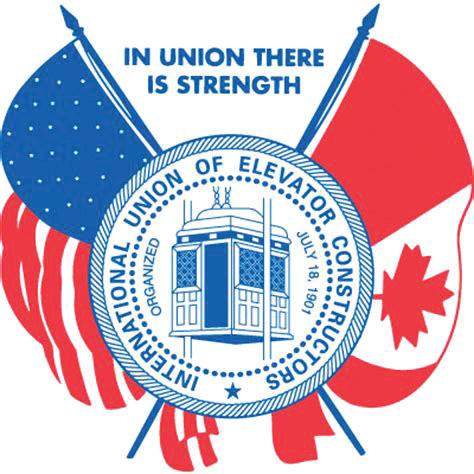
DESCRIPTION
IUEC apprentices and mechanics are responsible for assembling, installing, and replacing elevators, escalators, dumbwaiters, moving walkways, and similar equipment in new and old buildings. Elevator constructors also maintain and repair this equipment and modernize older equipment.
Jobs in construction and modernization will mainly focus on assembling new equipment, installing machinery, and following a building plan. Other roles, such as repair and service, will require troubleshooting and problem-solving. Electrical and mechanical issues are common in elevator service.
The IUEC’s apprenticeship program prepares its members for all different kinds of work in the elevator industry.
APPRENTICESHIP
The IUEC offers a four-year apprenticeship with competitive wages and benefits. The apprenticeship consists of 8-semester classes one night a week for 4 hours over four years. Apprentices will also have 8000 hours of on-the-job training with a Journeyman. Interested candidates can find open recruitments by visiting www.neiep.org. On the NEIEP website candidates will find an interactive map where they can register to be notified when the next open recruitment in their area will be held. Each Local JAC runs its recruitment approximately every two years. Interested candidates must be 18 years of age and possess a high school diploma or GED to apply.
SPECIALTY TRAINING
The elevator industry is made up of large manufacturing companies and smaller regional service companies. These companies have additional training programs related to their own equipment. The National Elevator Industry Educational Program provides Mechanics Continuing Education to all journey workers. These classes are designed to continuously improve mechanics that have completed the four-year program. These courses are offered online and in the classroom.
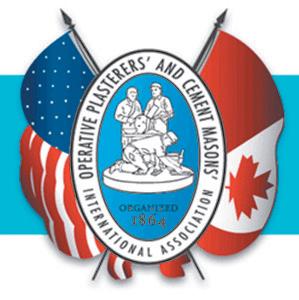
PLASTERER & CEMENT MASON
Operative Plasterers’ and Cement Masons’ International Association of the United States and Canada 14405 Laurel Place, Suite 300, Laurel, MD 20708
www.opcmia.org
• Fee: $20.00
• Age Requirements: 18
• Drug testing: Yes
• Length of program: Cement masons 3 years; Plasters 3 years
• Information needed: High school diploma or GED, drivers license
• Requirements: Physically fit
• Testing: General aptitude test
• Other information: Every applicant is interviewed
DESCRIPTION
Cement Masons work primarily with concrete or cement products. Cement masons are an integral part of the team that creates our nation’s roads, highways, dams and airport runways are all created by cement masons. Today’s high-rise office buildings all have floors of concrete.
Plasterers perform their work on walls and ceilings using a variety of materials to create smooth, decorative and fire safe interiors and exteriors. The many colors and rough finishes of stucco or exterior plaster are applied by plasterers. Plasterers also create shapes on ceilings and walls. Behind the walls and ceilings, plasterers have coated the building structure with materials that prevent structural steel distortion.
APPRENTICESHIP
Apprentices are paid while they are in training with regular raises during the course of their three or four year apprenticeship. In the classroom your instructors will teach you technical skills, safety training, how to read blueprints. As changes are made in construction technology, you will be taught the skills Our apprenticeship programs are operated in cooperation with employers and the union in the area to provide the best possible training.
SPECIALTY TRAINING
In today’s construction world, your training and learning never ends. The same apprenticeship program where you received your initial training continuously offers skill enhancement training along with periodic updates and recertifications for safety training. These are provided in conjunction with the training program, the employers, manufacturers of new construction systems and the finest safety trainers in the world. You are taught by fellow craftworkers who have received the training necessary to make them exceptional instructors.
23 Apprenticeship & Career Guide
BCTD Apprenticeship and Training
The unions affiliated with the Building and Construction Trades Department provide the highest quality apprentice and journeyworker training anywhere in the world. The apprenticeship and training programs of the building trades unions are administered by local joint apprenticeship and training committees (JATCs), made up of representatives from the local union and from industry employers. These local training trust funds spend over $500,000 million annually on training and operate over 2,000 training centers across North America. More than 180,000 apprentices and tens of thousands of journey-level workers receive quality training each year at these state-of-the-art facilities.
Apprenticeship
Through apprenticeship programs, new entrants to the industry receive supervised training on the job and related theoretical instruction under the tutelage of master craftworkers who are members of the building trades unions. Apprentices are em-ployed and receive wages while training on-the-job, and the cost of the related instruction is paid for by the sponsoring JATC. This “earn while you learn” feature of apprenticeship makes it afford-able for all.
Minimum qualifications, application and selection procedures, training content, wage progressions and completion requirements are determined by the apprenticeship programs of each affiliated union. All programs encourage women and minorities to apply.
The apprenticeship programs of the building and construction unions operate under standards registered and certified by the Employment & Training Administration, U.S. Department of Labor, or by a state apprenticeship agency.
Journeyworker Training
In the building and construction trades unions, training opportunities do not end upon completion of apprenticeship. All building trades unions and JATCs offer free skill improvement and skill up-grading to ensure their members have access to continuous learning opportunities. These pro-grams are designed to broaden, diversify and up-date the skills of union members.
Safety and Health Training College Credit
An innovation in the apprenticeship programs of the building trades combines apprenticeship with college study. In some programs, apprentices are “dually enrolled” in the apprenticeship program and in a college degree program. These programs recognize the achievement of those who success-fully complete their apprenticeship and offer participating apprentices expanded career options. One such program is through the National Labor College, which offers apprentices an opportunity to receive college credit for their related instruction and on-the-job training, and simultaneously work toward a Bachelor of Technical Studies.
As part of their skills training, building trades members learn safety on the job. Safety and Health courses help members better handle the hazards of construction sites and stay safe. These courses are available to apprentices and journey-level members.
School-To-Work
Many of the unions have also worked with area schools to create school-to-work programs. These successful programs have improved industry awareness among students and counselors, and have assisted students in their preparation for a career in the building trades.
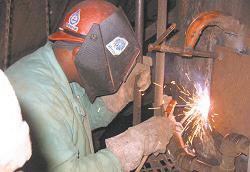
24 Apprenticeship & Career Guide
What is an apprenticeship?
An apprenticeship is a training program the produces highly skilled workers by combining on-the-job training with related classroom instruction. There are currently 37,000 registered apprentice-ship programs in the United States. (In order for an apprenticeship program to be registered with the Department of Labor, it must meet the criteria out-lined under Title 29, Code of Federal Regulations, Part 29.5. The Office of Apprenticeship Training, Employer and Labor Services (OATELS) division of the Department of Labor oversees this process.)
Who sponsors and pays for apprenticeship programs?
Apprenticeship programs are operated by both private and public sponsors. Financing for labor management apprenticeship programs is negotiated on a local level, and is guaranteed in the collective bargaining agreement. These funds are then administered by an Apprenticeship Trust Fund Committee, and are then allocated to the Joint Apprenticeship Training Committee (JATC); both are com-prised of labor and management representatives. The Trust Fund Committee ensures that monies are spent properly and that apprenticeship progress will meet the OATELS standards. Apprentices in these labor/management-sponsored programs incur no costs for their training – they earn while they learn.
What is unique about labormanagement sponsored apprenticeship programs?
Apprentices in labor-management sponsored programs are taking part in employee/employer run programs. Both the contractor and the union invest in the apprenticeship program together. The programs are free to would be apprentices. Our apprentices also receive safety training, which often exceeds even OSHA recommendations. Many private employer-run nonunion apprenticeship pro-grams do not mandate safety training for their apprentices. Our apprenticeship programs mandate 144 hours of classroom instruction. Our apprentices are taught in a classroom setting on the basics of the skill.
How many apprentices are trained annually?
In 2000, there were 360,511 registered apprentices. Approximately 55% of these apprentices were enrolled in union building trades apprentice-ship programs. The Associated Builders and Contractors trains only 15,000 apprentices each year, which equals about 4.1 of the total U.S. apprentice population.
What are the qualifications of our apprenticeship instructors?
Instructors generally have many years of experience as journeymen or women in the construction industry. In many joint labor-management run pro-grams, instructors must be certified and/or have at-tended instructor training classes sponsored by the JATC and training trust fund or the International Unions. These programs provide instructors with the very best methods of teaching apprentices as well as providing the necessary information for new technologies in the industry. Apprenticeship instructors also ensure that the mentoring process is employed on the construction job sites so the apprentices safely learn the necessary skills of his or her craft under the supervision of experienced journeypersons.
What about changing technology?
Labor-management apprenticeship programs are constantly offering new courses to past and current apprentices and modify their curricula to keep pace with changing technology. Changes in technology also force our apprenticeship programs to update their training programs on a continual basis.
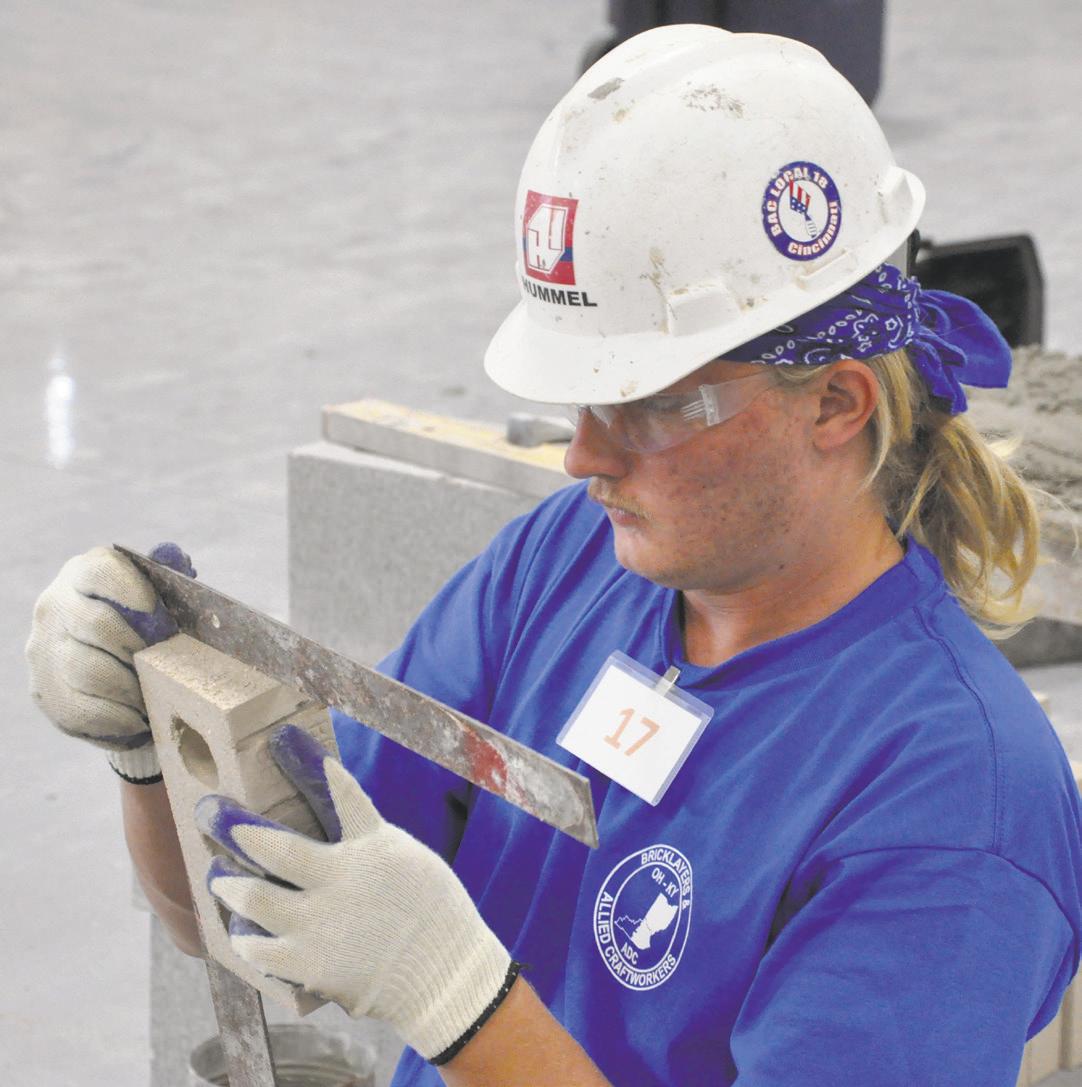
25 Apprenticeship & Career Guide
Q & A
OPERATING ENGINEER
Operating Engineers
International Union of Operating Engineers Local #66
111 Zeta Drive, Pittsburgh, PA 15238-2811
412-968-9120
www.iuoe66.org
DESCRIPTION
Across America and Canada, the Operating Engineers build, maintain, and service places where we live, work, worship, study and play. Operating Engineers maintain control centers, boiler rooms, and HVAC units for our safety, comfort, and well-being, and their skills are put to the task every day.
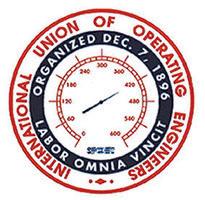
Hoisting and Portable Operating Engineers work on high rise buildings, operating construction cranes, as well as in deep excavations with earth moving equipment. They turn lines on paper into skylines and roadways across the USA and Canada. Contractors look to the Operating Engineers and its 400,000 members, for their skills, safety, and proficiency. The Operating Engineer has the respect and control to build the foundations of the world. There is not a better feeling than physically seeing the fruits of your labor, and that’s the feeling you get from being an Operating Engineer.
SPECIALTY TRAINING
All through the apprenticeship program, apprentices, as well as journey-persons, have the opportunity to upgrade their skills. New laws requiring certifications, such as: fork lift certification, crane certification, HAZ-MAT certification, refrigerant recovery, and all license requirements are offered through the training departments and Joint Apprenticeship and Training (JATC) programs.

• Fee: $25.00
• Age Requirements: 18 years
• Drug testing: Yes
• Length of program: 4 years & 4,000 hours on-thejob training
• Applications: Call for information
• Requirements: Diploma or GED, High school transcripts and drivers license when application is returned
• Requirements: Resident of 1 of the 36 counties covered by the program. Must have a diploma or GED, drivers license and transportation.
• Testing: Pass a D.O.T. Physical. Selection test. Interview
APPRENTICESHIP
Each of the trades (stationary or hoisting and portable engineer) uses an apprenticeship system. Hours and course description vary between the two classifications, but both have one common goal: to make the Operating Engineer apprentice the most knowledgeable about his/her craft. The National Joint Apprenticeship Training Committees have seen the need to update and stream-line programs that include training both in the field and practical hands-on training at dedicated training facilities. With new innovations being introduced every day, these programs are constantly retooling to make their apprentices smarter, safer, and more productive, to ready them for today’s contractors. Competitive starting wages and progressive wage increases enhance the Operating Engineer apprenticeship programs and add to the apprenticeship goal of “earn while you learn.”

26 Apprenticeship & Career Guide
Operating Engineers
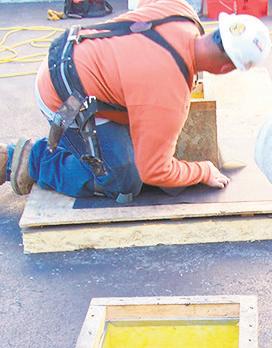

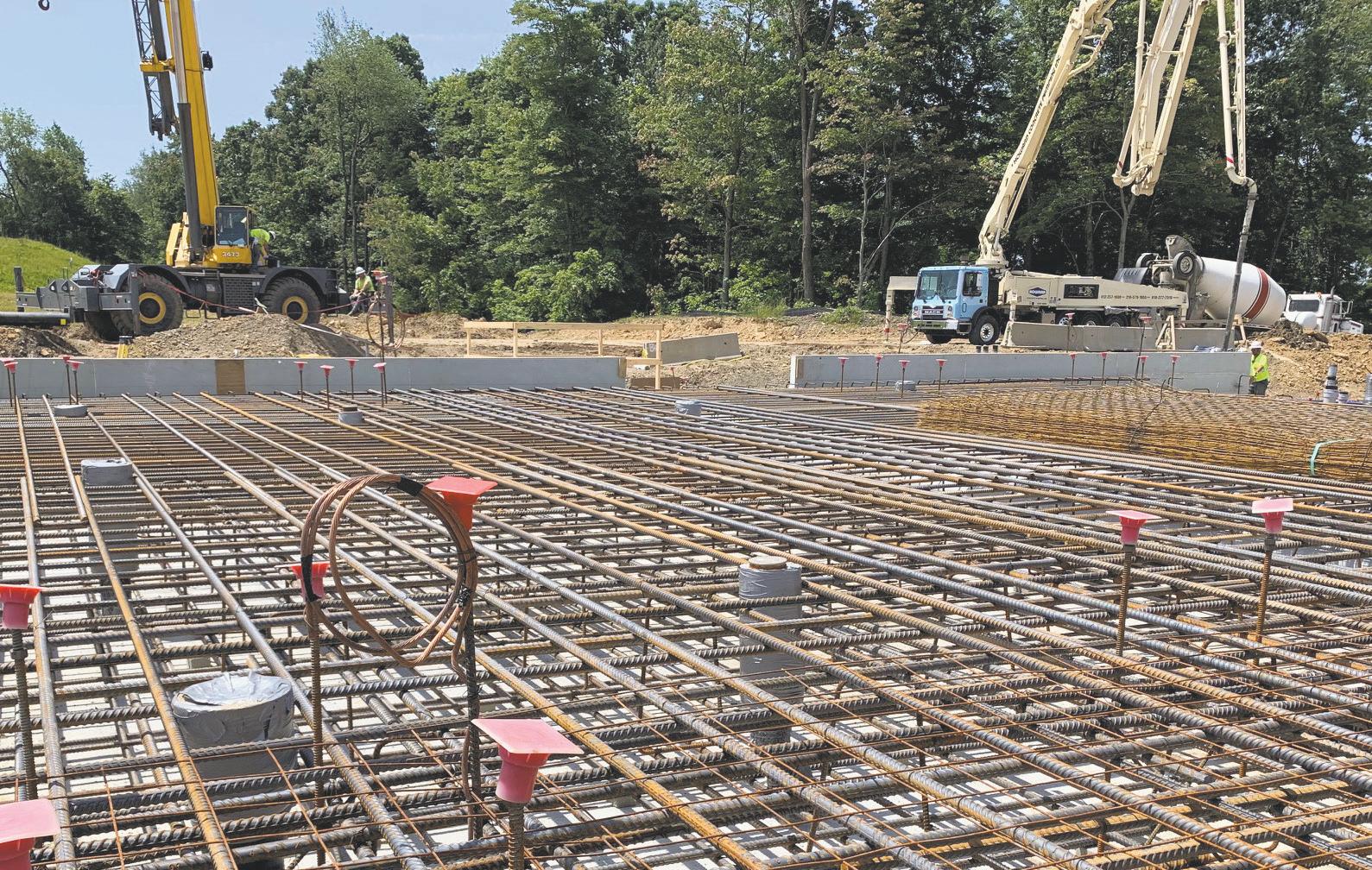
27 Apprenticeship & Career Guide
Pipefitters
Bricklayers
Roofers
DIRECTORY
Boilermakers
Local #744 .................................... Brian Carr / 216-241-2085
1435 East 13th St, Cleveland, OH
Local #154 .......................................... Ray Orsi / 412-343-3072
1221 Banksville Rd., Pittsburgh, PA 15216
Bricklayers/Allied Craftworkers
Apprentice Coordinator
Tammy Tansey
www. Bac23-ohwvky.com • 440-986-3300
Ohio Valley Chapter Sierra Kriston / 540-435-7360
Tri-State Chapter ............................ Luke Henry / 740-624-6027
Richard Moon / 606-331-0714
Northern West Virginia Chapter Brian Greynolds / 304-276-2547
Carpenters
Local #171 .............................................................. 330-746-0551
Tony DiTommaso / Justin Rance / John Sofranko
Mahoning County, Trumbull County, Columbiana County
8065 Market St., Boardman, OH 44512
Local #186 ................................... Troy Stewart / 740-283-1416
626 N. 4th. St, Steubenville, OH 43952
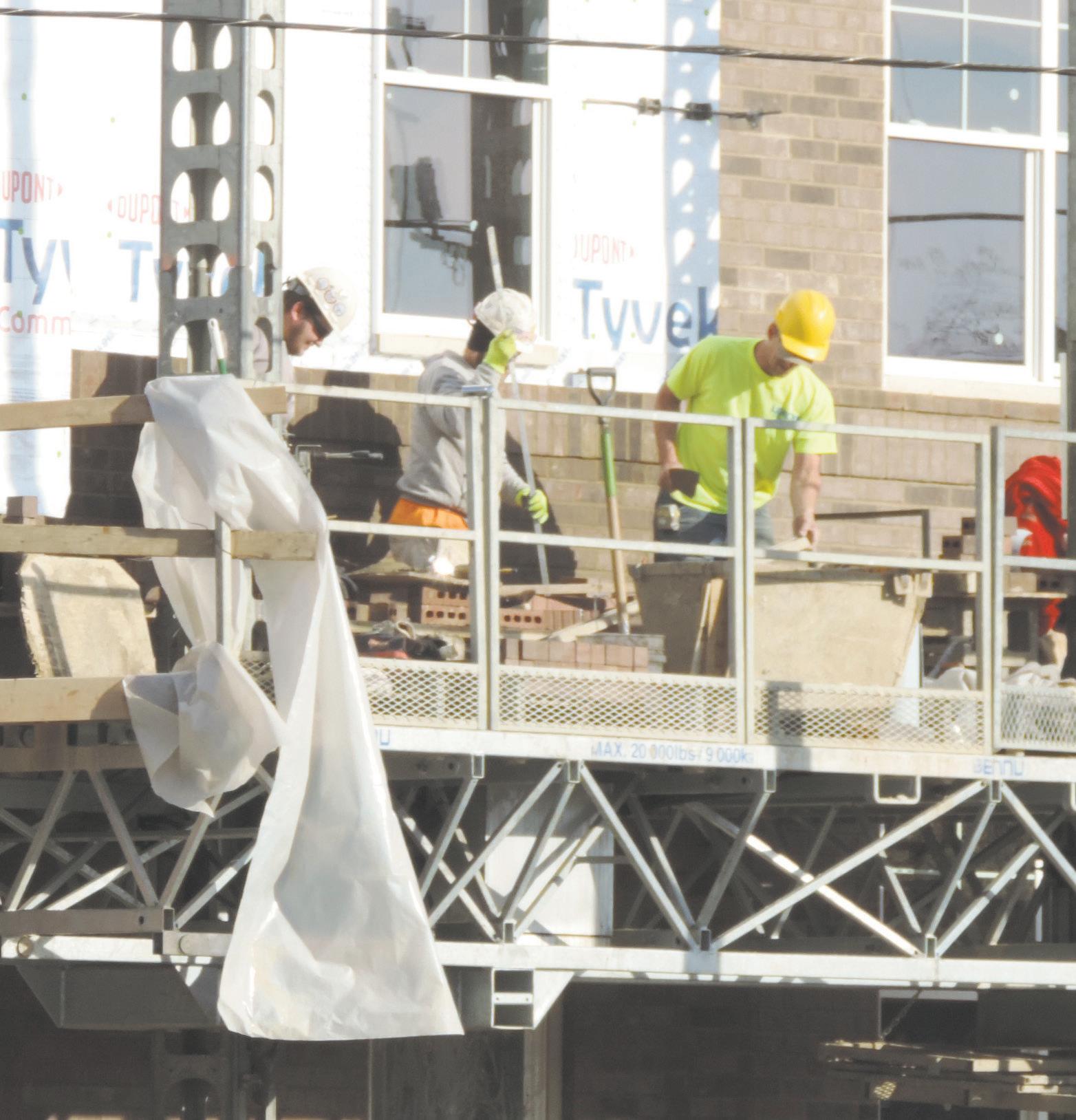
Bricklayers
Electricians
Local #64 ....Ed Emerick / Training Director - 330-965-0578
ed@jatc.com
• www.yjatc.org
Scott Satterlee / Business Manager
Elec64@sbcglobal.net
• 330-758-8654
Cody Hilliard • chilliard@IBEW64.org
350 E. Western Rd., Youngstown, OH 44514
Local #573 ...... Eric Davis / Training Director - 330-394-3690
info@warrenjatc.org
• www.WarrenJATC.org
4550 Research Parkway, Warren, OH 44483
Todd Ambrose / Business Manager 330-394-3606
tambrose@ibew573.org
• www.ibew573.org
Local #141 ................................ Tom Conners / 304-242-3870
82 Burkham Court, Wheeling, WV 26003
TLC141@aol.com
Local #246 Eric Nutter / 740-282-7572
P.O. Box 188, 626 N. 4th St., Steubenville, OH 43952-5188
Elevator Constructors
Local #6 .......................................... Paul Ryan / 412-341-6666
Local #45 Ron Johnston/ 330-474-7753
277 Martinel Dr., Kent, OH 44240
Glaziers/Window Glaziers
Local #847 ....................................... Tim Halas / 330-207-4855
35 S. State St., Girard OH 44420
Local #53 .................................Michael Lively / 304-343-8250
101 Lewis St., Charleston, WV 25301
Heat & Frost Insulators
Local # 84 .............................................................. 330-346-0622
277 Martinel Dr. Kent, OH 44240
Director of Training ...................... Dave Barker/ 304-539-2278
Ironworkers
Apprentice Coordinator
Matt Sargent / 330-726-9421 - www.iw207.com
Local # 207 ................................... Tony Deley / 330-758-9777
694 Bev Road, Boardman, OH 44512
28 Apprenticeship & Career Guide
Laborers
DIRECTORY
Local #125 ............................... John Lucente / 330-783-3124
4178 Market St., Youngstown, OH 44512
Local #935 ................................. Jim Ledenko / 330-395-5105
465 W. Market St., Warren, OH 44481
Local #809 ................................... Clint Powell / 740-282-0771
306 Adams St, Steubenville, OH 43952
State Apprentice Coordinator
Matt Flynn / 740-599-7915
25721 Coshocton Rd., Howard, OH 43028
Millwrights /Piledrivers
Millwrights / Local #1090 ..... Dan Siembida / 330-746-0551
865 Market St., Boardman, OH 44512
Millwrights / Local #1090 ................................... 740-282-1995
626 N. 4th. St., Steubenville, OH 43952-2067
Millwrights / Local #443 .......... Jesse Stacey / 304-422-1593
4600 Camden Ave. Parkersburg, WV 26101-7389
Piledrivers / Local # 1090 ................................... 330-746-0551
755 Boardman-Canfield Rd., Boardman, OH 44512
Piledrivers /Local #441 ........... Jason Shaffer / 814-895-0000
495 Mansfield Ave., Pittsburgh, PA 15205
Operating Engineers
Local #66 .......................... Brian Wydick / 330-758-7536 x192
291 McClurg Rd., Youngstown,OH 44512
Director of Marketing
Shawn Bertiaux / (412) 968-9120 x116
111 Zeta Drive, Pittsburgh, PA 15238-2811
Training Center ....... Steven Columbus / 724-668-2244 x302
Painters & Allied Trades
Local #476 ......................................... Jim Taylor / 330-758-7117
35 S. State St., Girard, OH 44420
Plasterers & Cement Masons
Local #526 ............................................................. 412-761-6310
2606 California Ave., Pittsburg, PA 15212
Plumbers, Pipefitters & Steamfitters
Local# 396 .................................... Marty Loney / 330-758-4596
493 Bev Rd., Bldg #3 Boardman, OH 44512
localunion396@zoominternet.net • www.ualocal396.org
Local #495 ................................... Chad Walker / 740-264-4973
2700 Sunset Blvd., Steubenville, OH 43952
Road Sprinkler Fitters
Local #669 -WV Dist 30 ......David A. Ford / 513-336-9583
P.O. Box 539, Mason, OH, 45040-0539
Roofers
Local #71 ................................... Nancy Weibel / 330-746-3020
2714 Martin Luther King Blvd., Youngstown, OH 44510
RoofersLocal71@gmail.com
Sheetmetal Workers
Apprentice Coordinator
Larry McQuillan / 330-758-0112
Local #33
Jesse Wright / 330-758-3393
200 McClurg Rd., Boardman, OH 44512
jwright@smwlu33.org
Sprinkler Fitters
Local #669
Local #377
Local 92
Sean M. Murphy / 513-336-9583
P.O. Box 539, Mason, OH 45040
Teamsters
Rodney Bartlett / 330-743-3111 x110
1223 Teamster Dr., Youngstown, OH 44502
Doyle Baird / 330-453-0135 x104
1127 9th St. S.W., Canton, OH 44707

29 Apprenticeship & Career Guide

IRON WORKERS
International Association of Bridge, Structural, Ornamental & Reinforcing Iron Workers
APPRENTICESHIP
The Iron Workers Apprenticeship Program generally takes three to four years to complete. It consists of on-the-job training and 144 hours of related classroom instruction per year. Apprentices receive training in all segments of the industry, including blueprint reading, welding, flame cutting, plasma arc welding and cutting, rigging, use of hand and power tools, OSHA Construction Safety Regulations, rebar, fabrication, caulking and structural steel, First Aid/CPR, and the use of precise plumbing and leveling instruments. The training is comprised of “hands-on” activities, demonstrations by equipment suppliers, and classroom lectures.
DESCRIPTION
People often confuse iron workers with steel-workers. Ironworkers erect the steel that is milled by a steel worker. Iron workers assemble and erect steel framework and other metal parts in buildings, on bridges, dams and other steel structures. They raise, place and join steel girders and columns to form structural frameworks, including welding of metal decking. When you drive by a building that looks like a skeleton waiting for its skin, that is the work done by Ironworkers. There are many classifications of work as an Ironworkers. For example, you can be a welder, a rodman, a finisher, a sheeter, structural ironworker worker, or a rigger. Ironworkers generally work in all conditions and in all types of weather. They often work at great heights and in confined spaces. Iron workers find this variety appealing and are pleased at the end of the day when they can see the results of their work.
SPECIALTY TRAINING
Advanced technology, changing regulations, in-creased productivity demand and diversity are some of the issues our training programs address. Journeyworkers can take advanced courses in areas such as welding, lead hazard, blueprint reading, and O.S.H.A.
• Age Requirements: 18 years
• Length of program: 4 years
• Drug testing: Yes
• Testing: Yes
• Information needed: high school transcripts, drivers license, diploma or GED
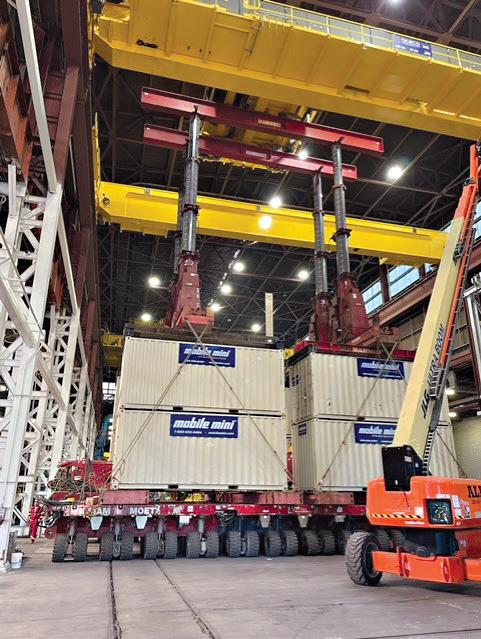

30 Apprenticeship & Career Guide
1750 New York Avenue, NW Washington, DC 20006

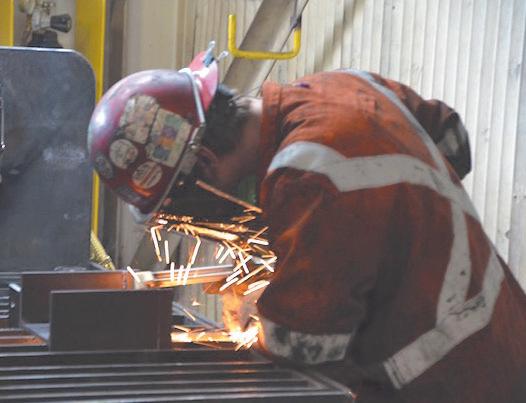



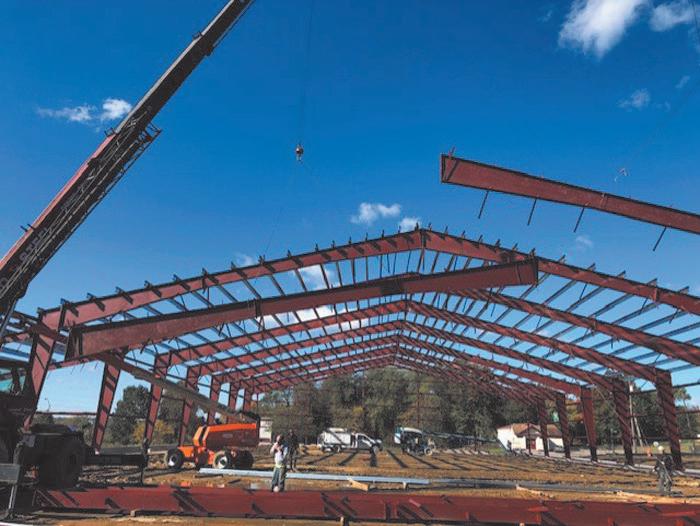
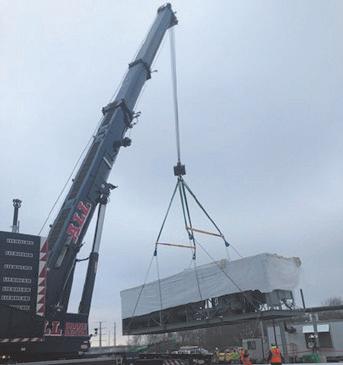

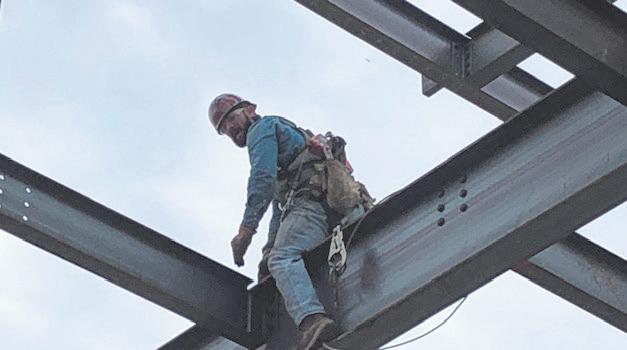
31 Apprenticeship & Career Guide Building YOUR Community Proud Past Bold Future Union Ironworkers Why waste your money on Trade SchoolsEarn as you learn with us! Local Union #207 • Youngstown, OH • OSHA, CPR & MSHA Training • Over 200AWS Certified Welders • Blueprint Reading in Structural & Reinforcement Steel Placement • Pre-engineered Building Erection • Machinery Moving & Heavy Rigging EDUCATED IN: • A Living Wage • Health Insurance • An Annuity Plan • Pension Plan WE OFFER: www.iw207.com For more information and a list of contractors who employ qualified, skilled Ironworkers for your next project, call: Ironworkers Local #207 330-758-9777
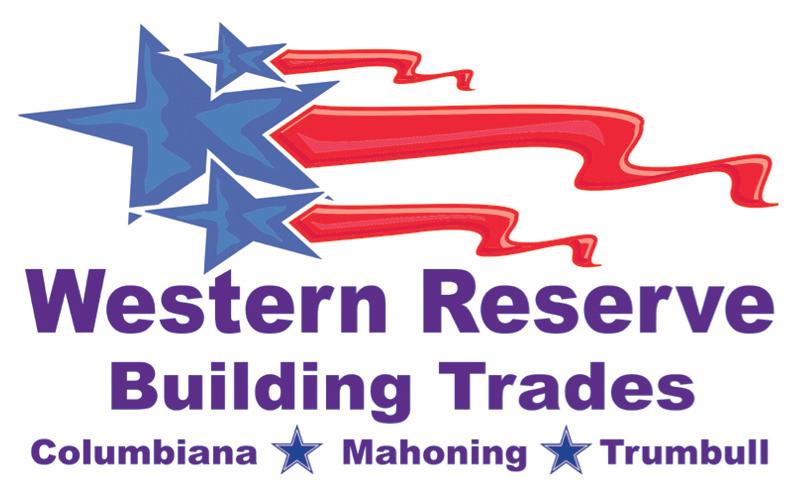
• Boilermakers/Local 154
• Boilermakers/Local 744
• Bricklayers, Marble & Tile Setters/Local 8
• Bricklayers, Marble & Tile Setters/Local 10
• Carpenters & Floorlayers /Local 171
• Plasterers & Cement Masons 526
• Electricians/Local 64
• Electricians/Local 246
• Electricians/Local 573
• Elevator Constructors /Local 45
• Glaziers/Local 847
• Bridge, Structural & Ornamental Iron Workers/Local 207
• Laborers/Local 125
• Laborers/Local 809
• Laborers/Local 935
• Millwrights & Piledrivers/Local 1090
• Operating Engineers /Local 66
• Painters/Local 476
• Plumbers & Steamfitters /Local 396
• Roofers/Local 71
• Sheet Metal Workers/Local 33
• Sprinklerfitters/Local 669
• Teamsters/Local 377

32 Apprenticeship & Career Guide
on
on
in the Mahoning
for Over 100 Years. wrbctc.org 330-758-8160 FAX 330-746-6837
Building Quality Structures
Time and
Budget
Valley
• Heat & Frost Insulators/Local 84













 By RON SELAK JR. Staff writer
By RON SELAK JR. Staff writer



















































































